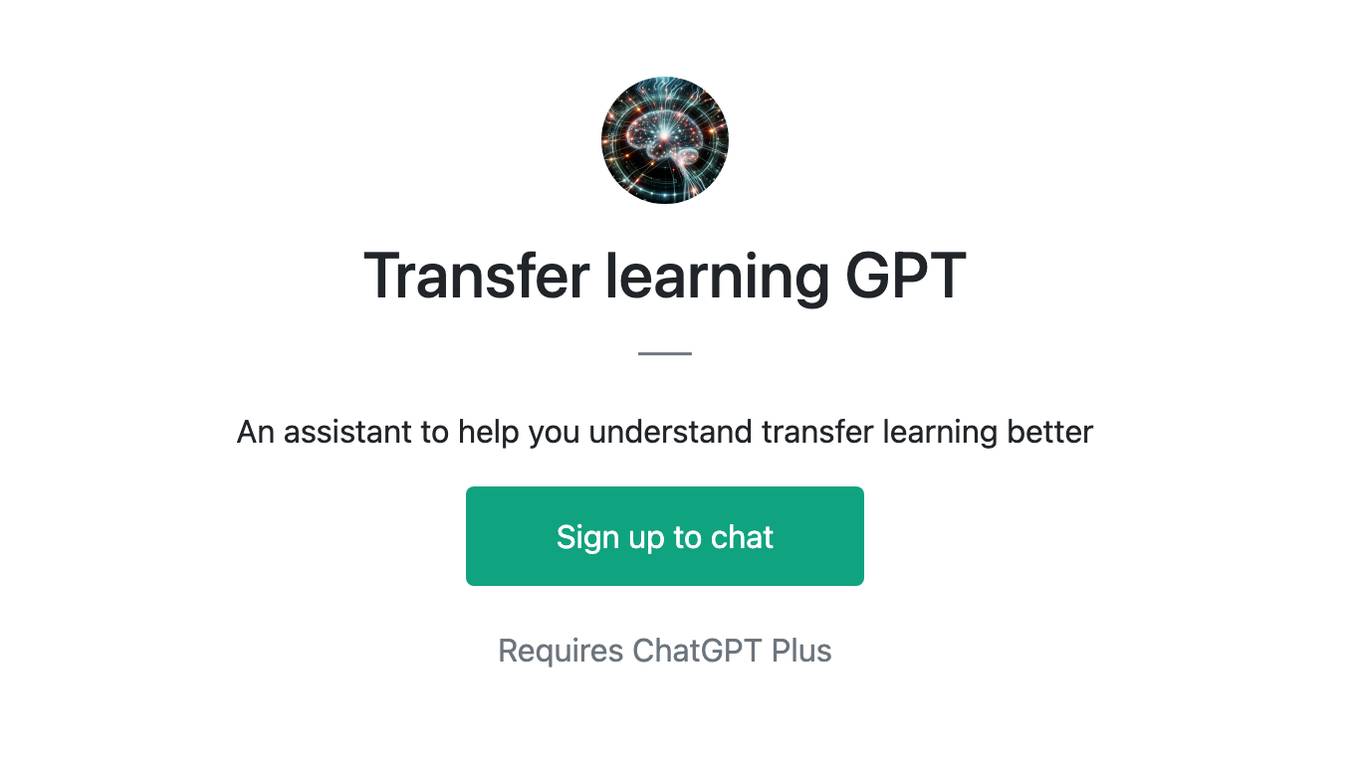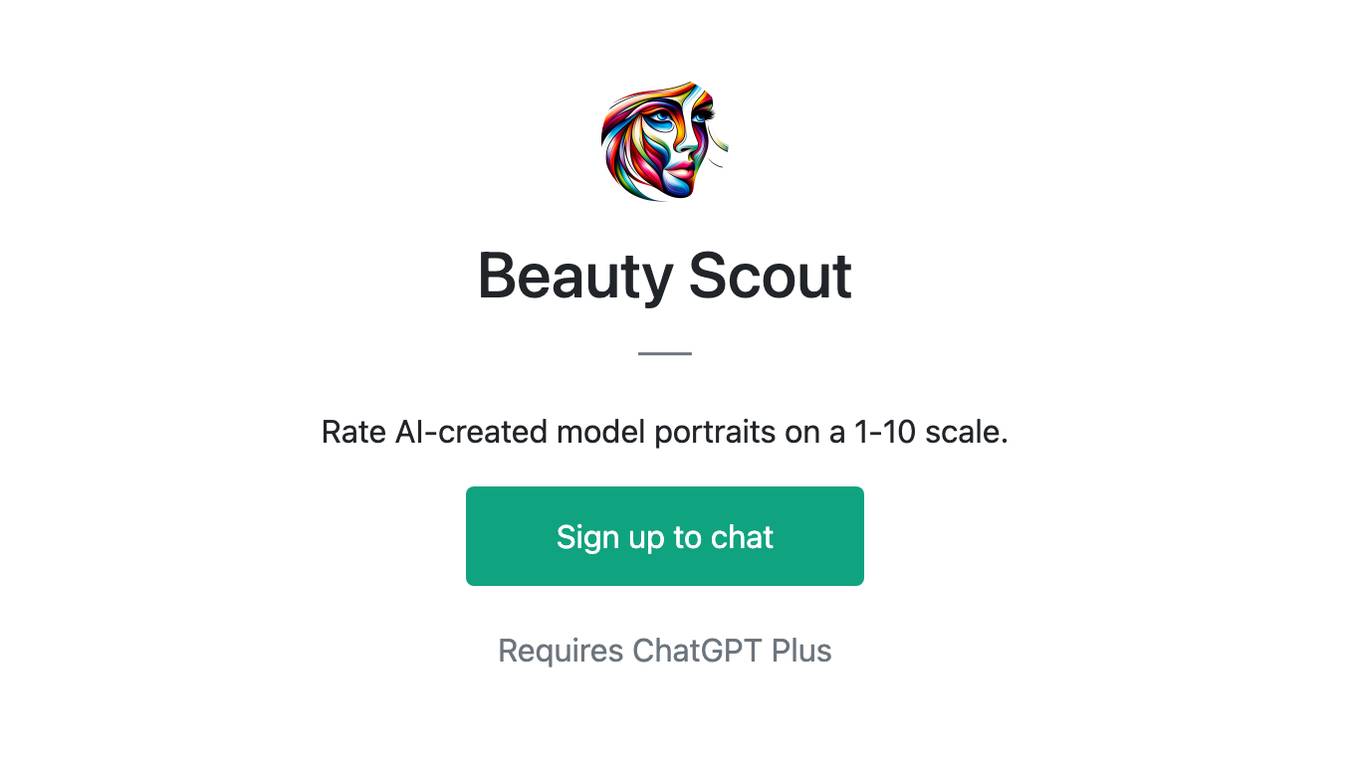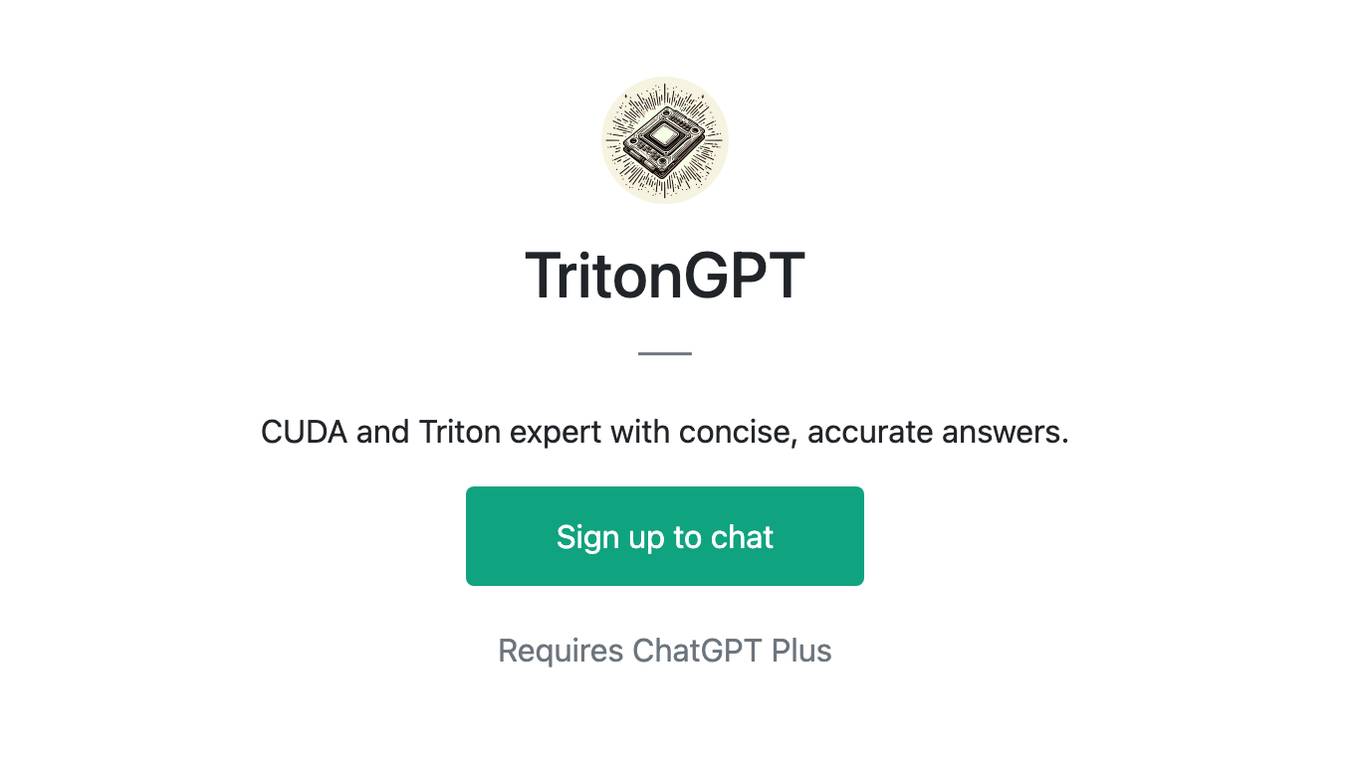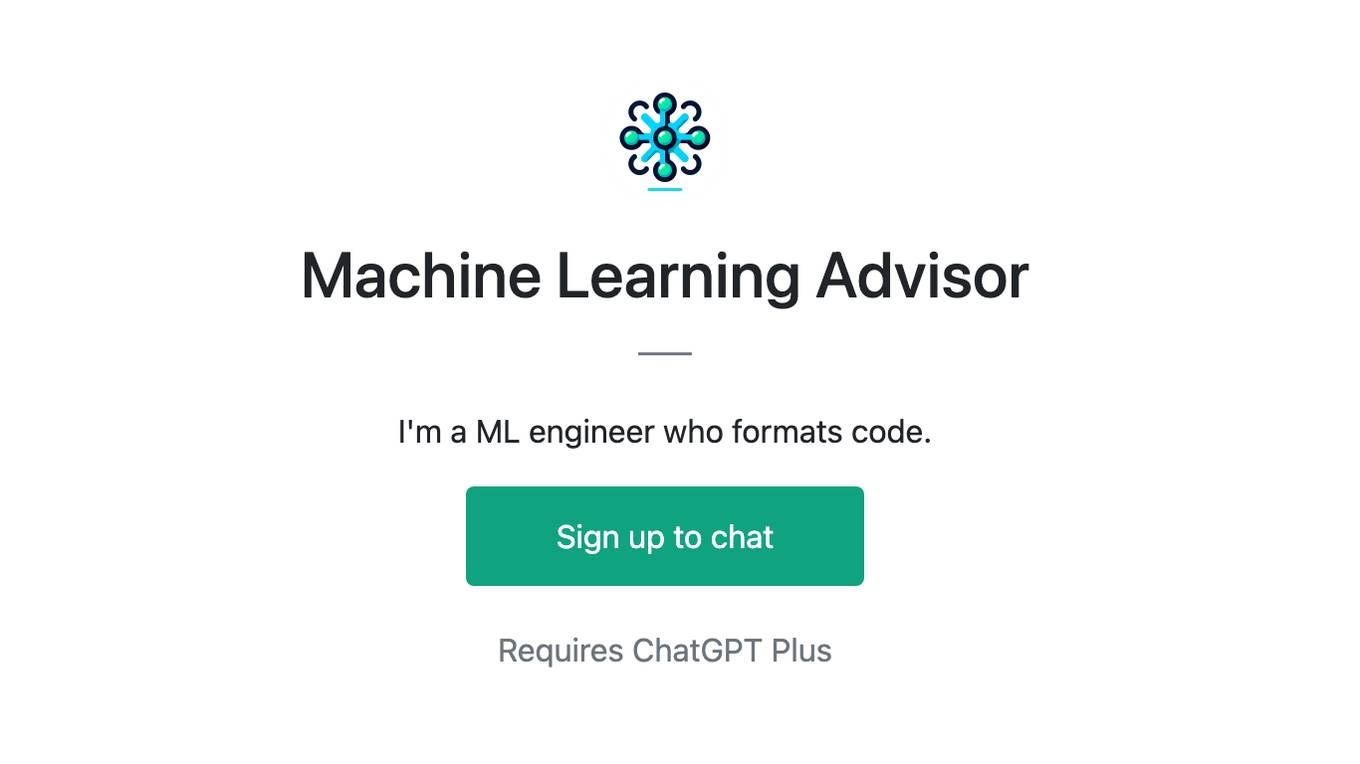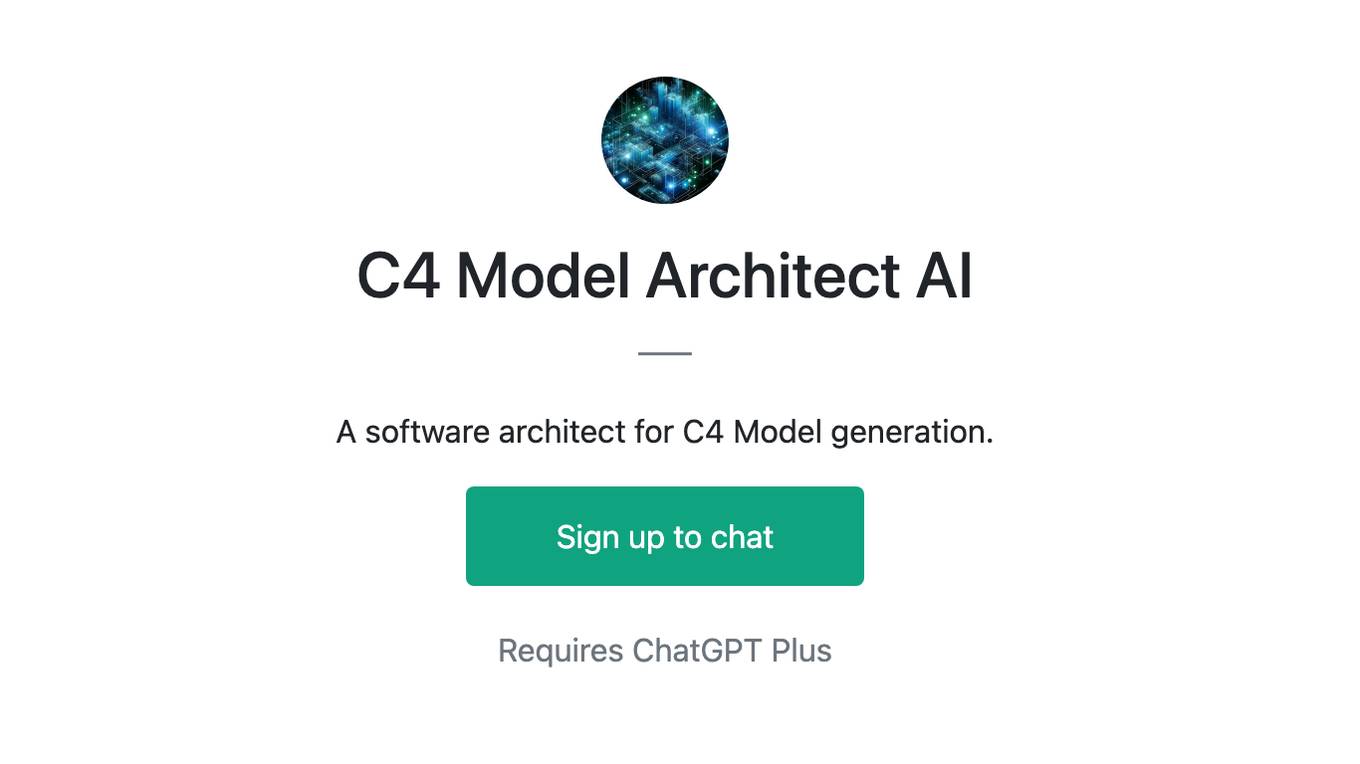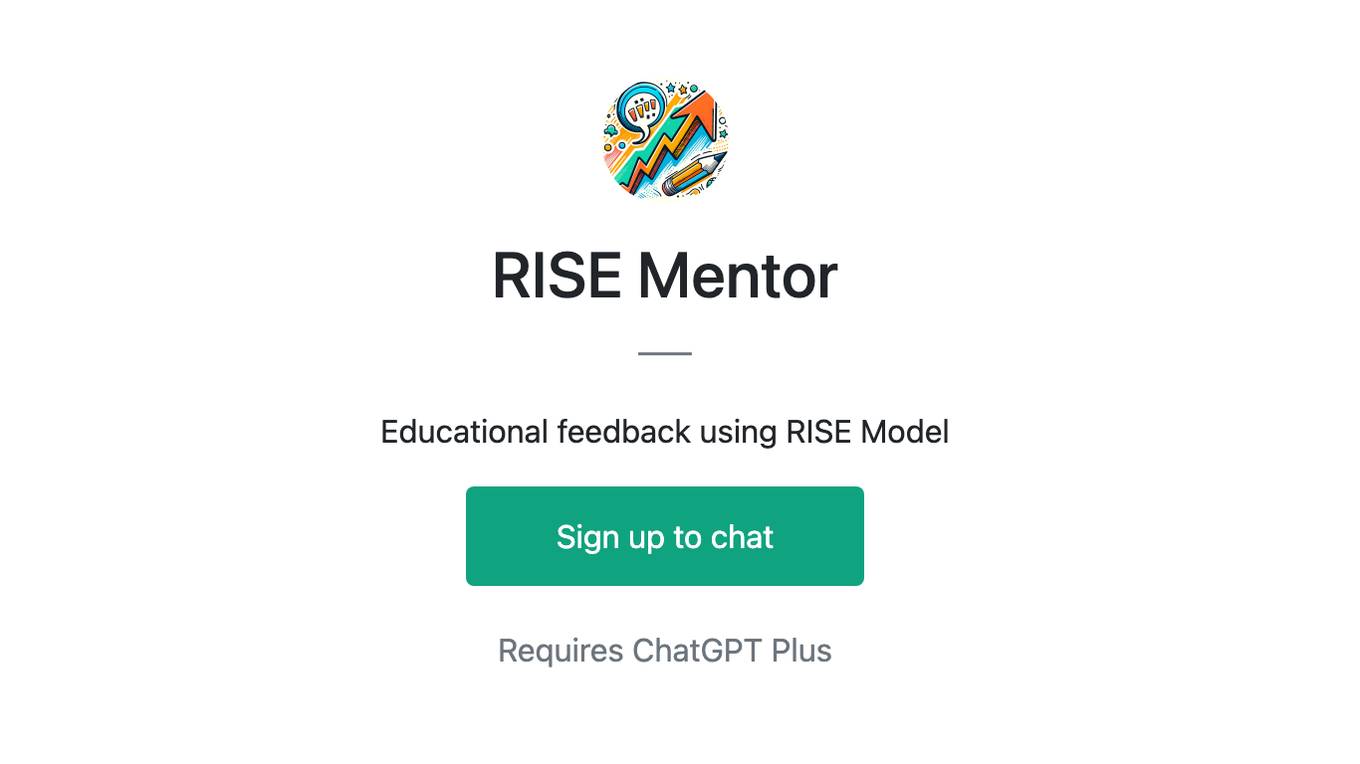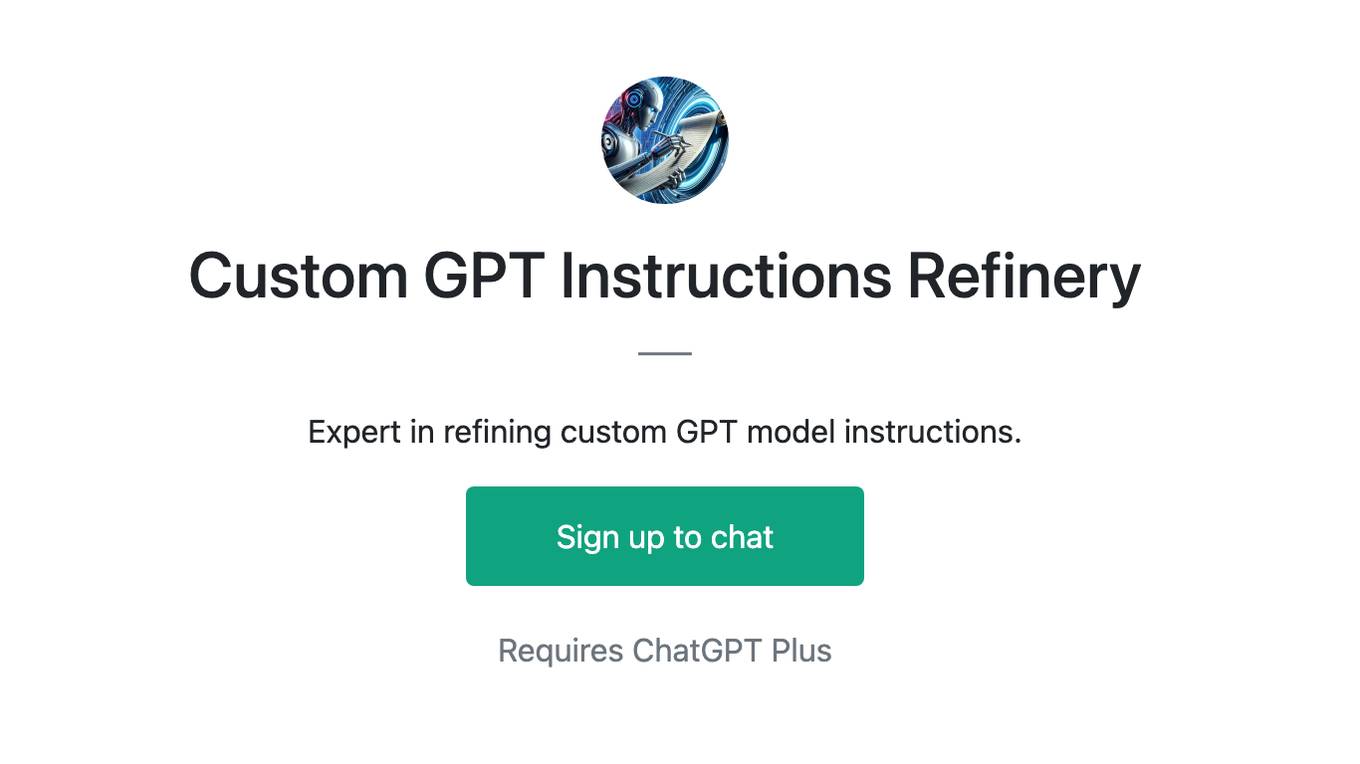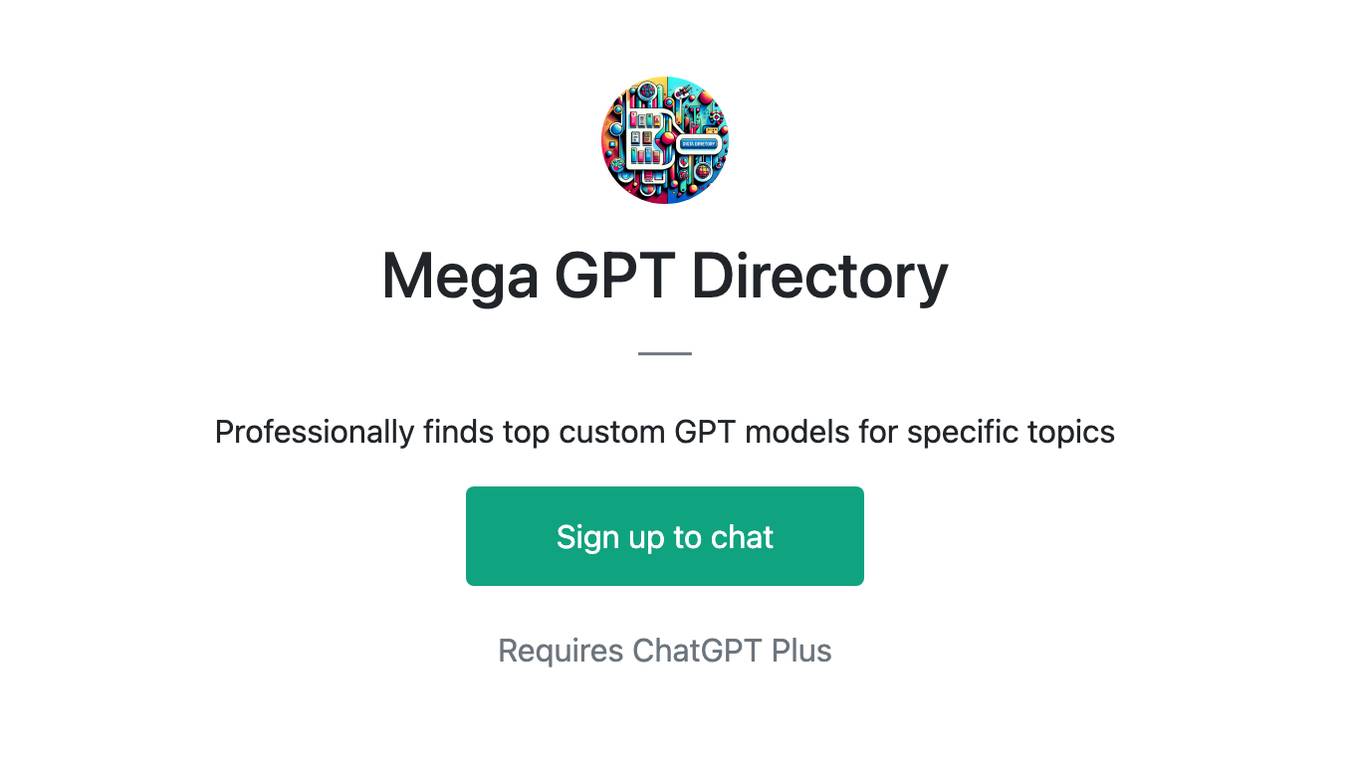Best AI tools for< Improve Model Performance >
20 - AI tool Sites
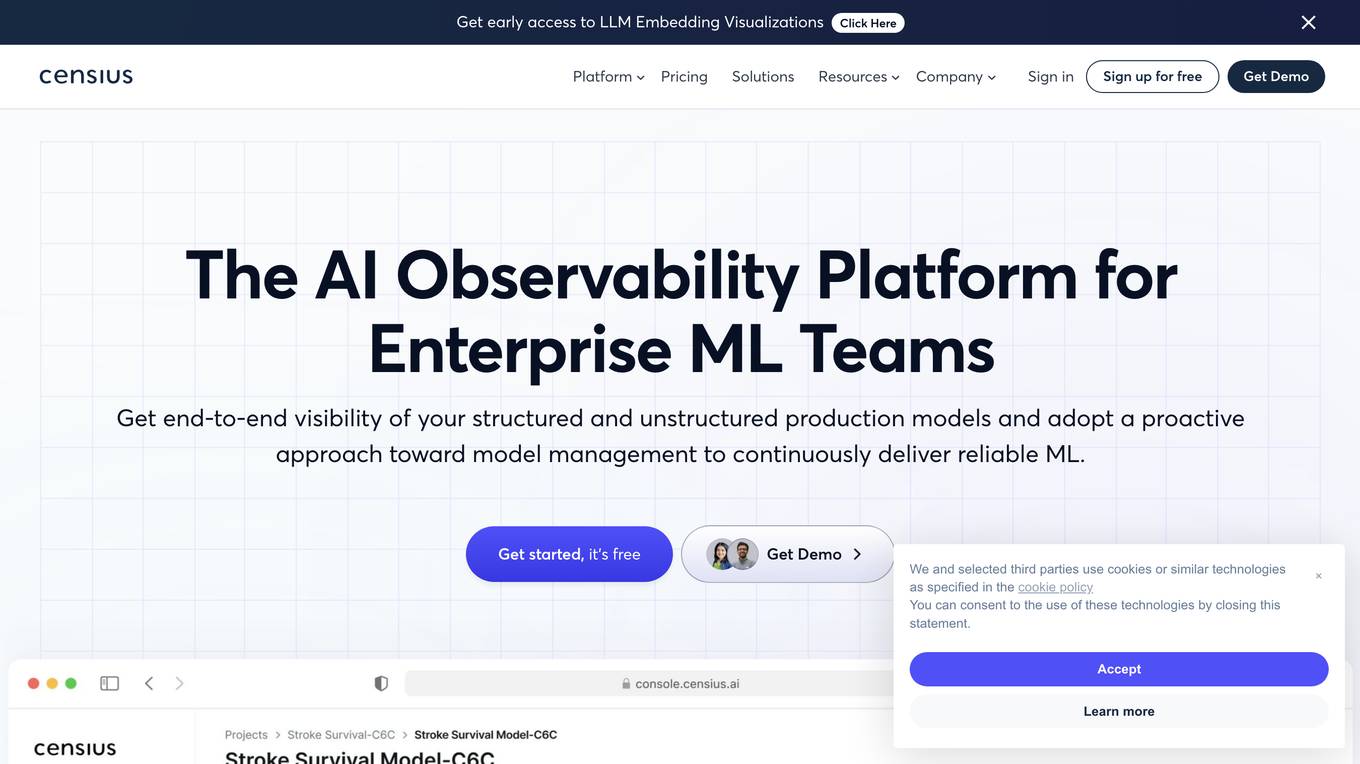
Censius
Censius is an AI Observability Platform for Enterprise ML Teams. It provides end-to-end visibility of structured and unstructured production models, enabling proactive model management and continuous delivery of reliable ML. Key features include model monitoring, explainability, and analytics.
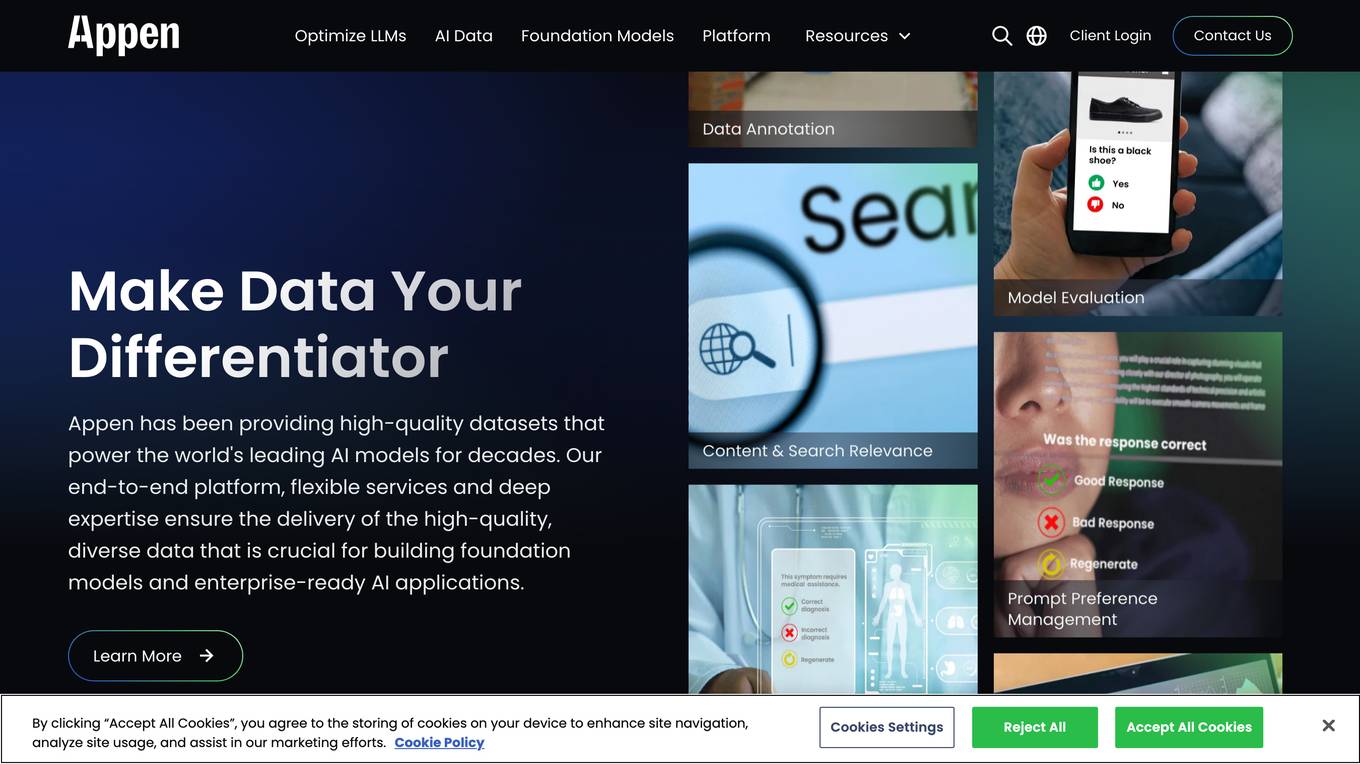
Appen
Appen is a leading provider of high-quality data for training AI models. The company's end-to-end platform, flexible services, and deep expertise ensure the delivery of high-quality, diverse data that is crucial for building foundation models and enterprise-ready AI applications. Appen has been providing high-quality datasets that power the world's leading AI models for decades. The company's services enable it to prepare data at scale, meeting the demands of even the most ambitious AI projects. Appen also provides enterprises with software to collect, curate, fine-tune, and monitor traditionally human-driven tasks, creating massive efficiencies through a trustworthy, traceable process.
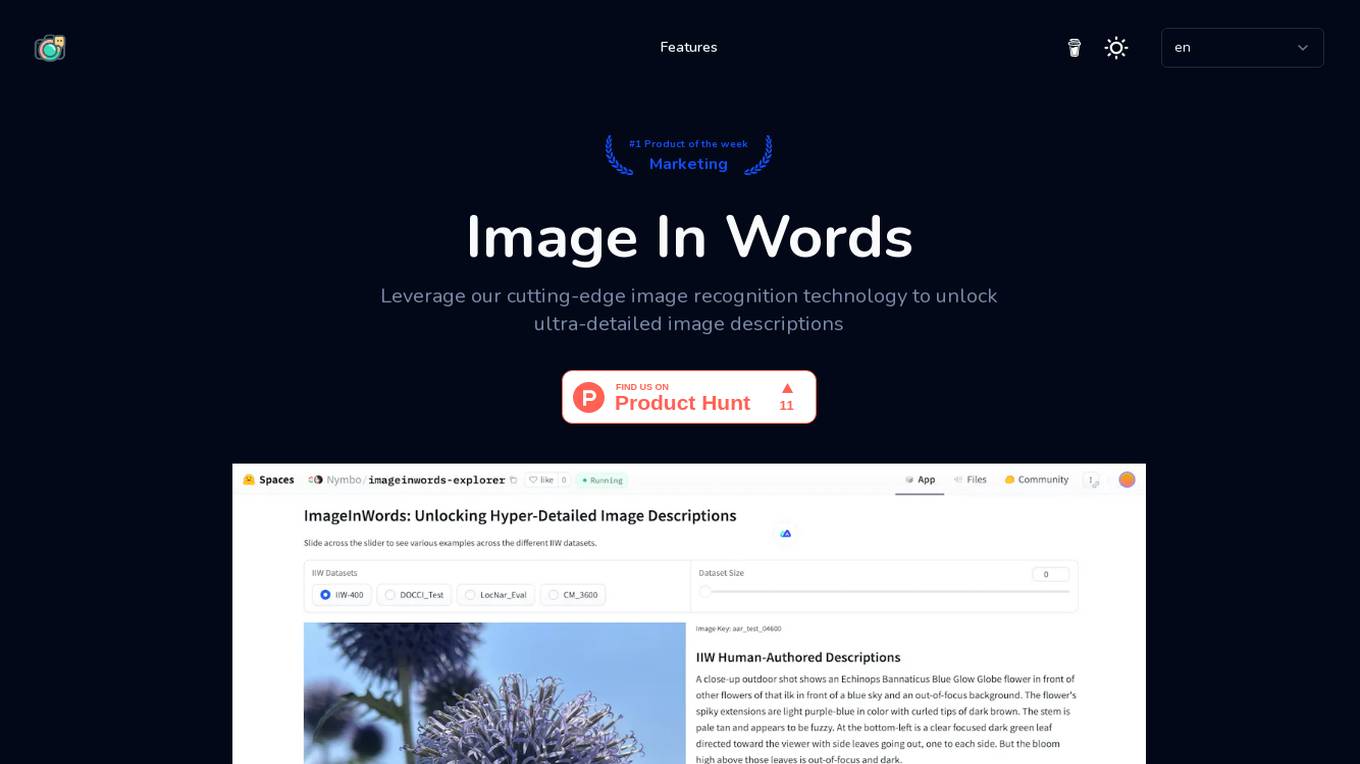
Image In Words
Image In Words is a generative model designed for scenarios that require generating ultra-detailed text from images. It leverages cutting-edge image recognition technology to provide high-quality and natural image descriptions. The framework ensures detailed and accurate descriptions, improves model performance, reduces fictional content, enhances visual-language reasoning capabilities, and has wide applications across various fields. Image In Words supports English and has been trained using approximately 100,000 hours of English data. It has demonstrated high quality and naturalness in various tests.
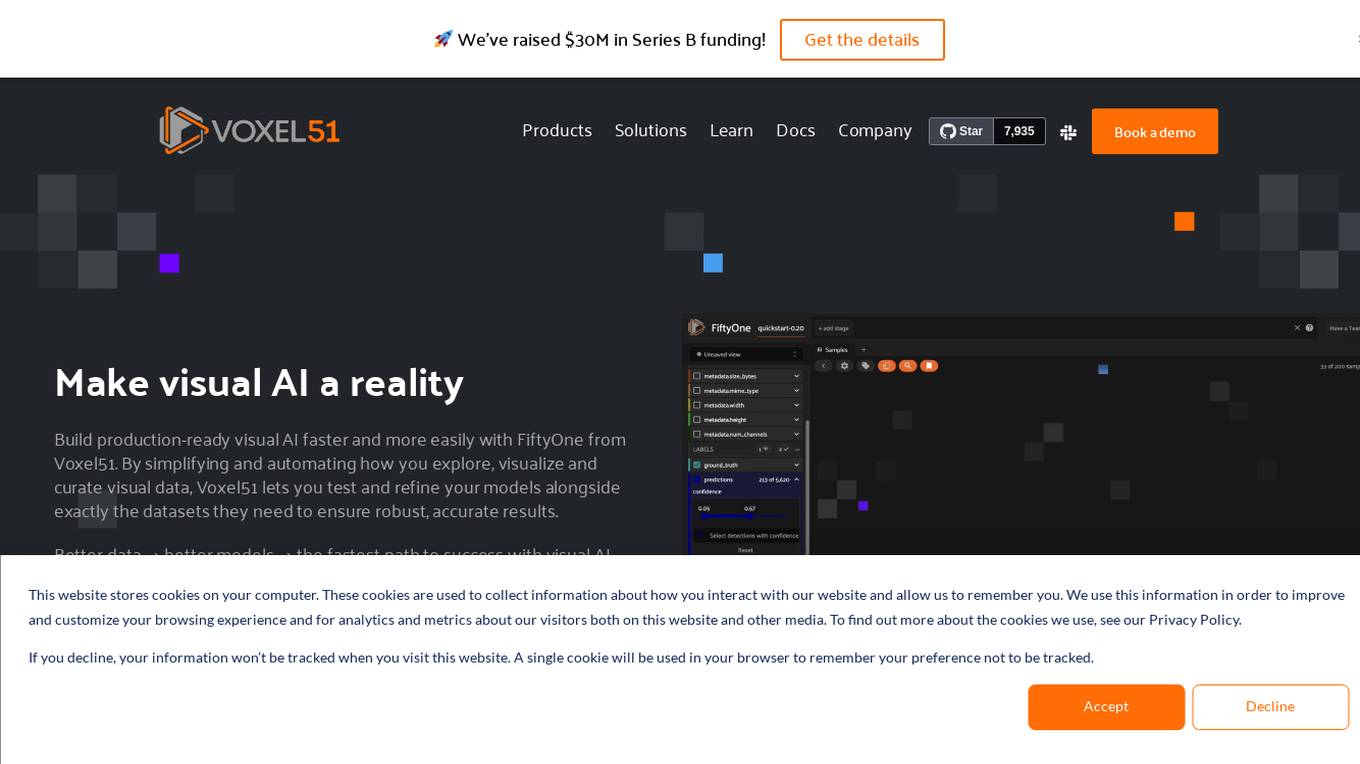
Voxel51
Voxel51 is an AI tool that provides open-source computer vision tools for machine learning. It offers solutions for various industries such as agriculture, aviation, driving, healthcare, manufacturing, retail, robotics, and security. Voxel51's main product, FiftyOne, helps users explore, visualize, and curate visual data to improve model performance and accelerate the development of visual AI applications. The platform is trusted by thousands of users and companies, offering both open-source and enterprise-ready solutions to manage and refine data and models for visual AI.
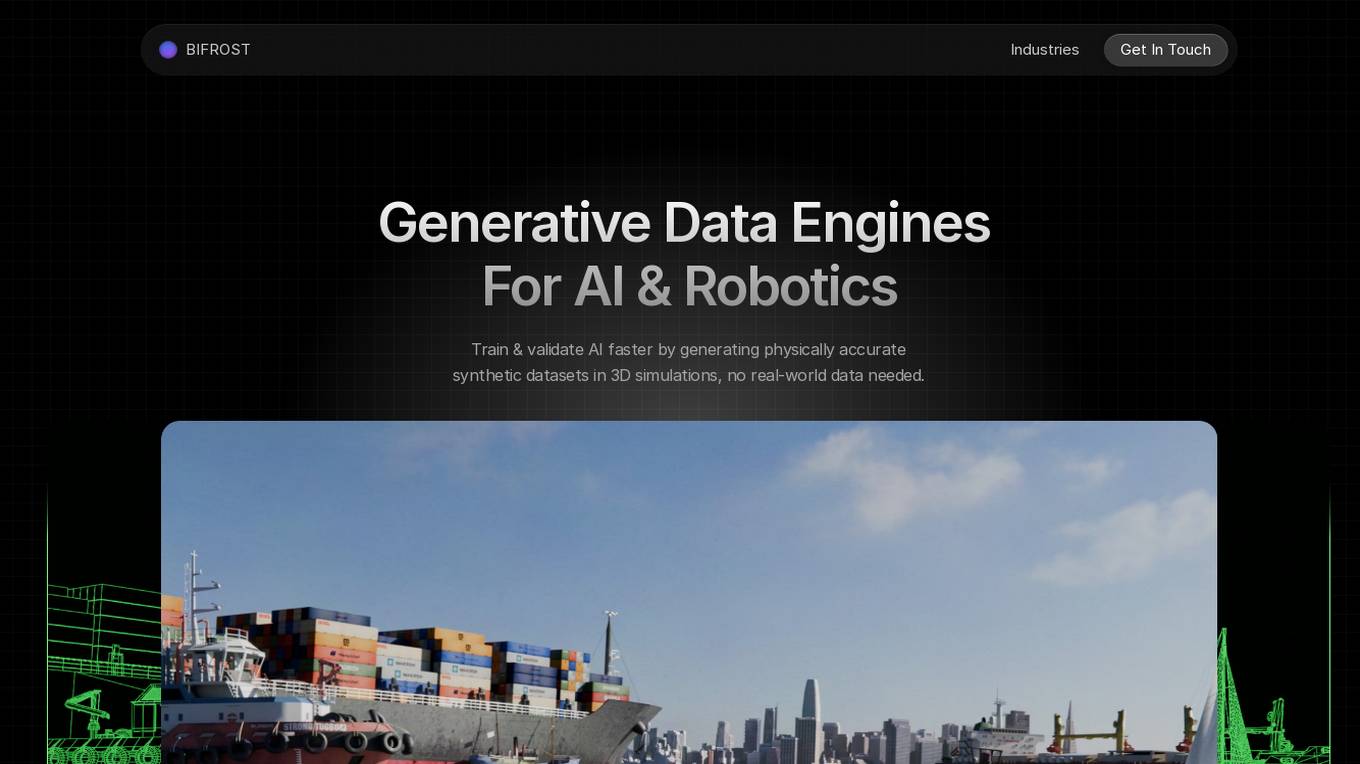
Bifrost AI
Bifrost AI is a data generation engine designed for AI and robotics applications. It enables users to train and validate AI models faster by generating physically accurate synthetic datasets in 3D simulations, eliminating the need for real-world data. The platform offers pixel-perfect labels, scenario metadata, and a simulated 3D world to enhance AI understanding. Bifrost AI empowers users to create new scenarios and datasets rapidly, stress test AI perception, and improve model performance. It is built for teams at every stage of AI development, offering features like automated labeling, class imbalance correction, and performance enhancement.

Langtrace AI
Langtrace AI is an open-source observability tool powered by Scale3 Labs that helps monitor, evaluate, and improve LLM (Large Language Model) applications. It collects and analyzes traces and metrics to provide insights into the ML pipeline, ensuring security through SOC 2 Type II certification. Langtrace supports popular LLMs, frameworks, and vector databases, offering end-to-end observability and the ability to build and deploy AI applications with confidence.
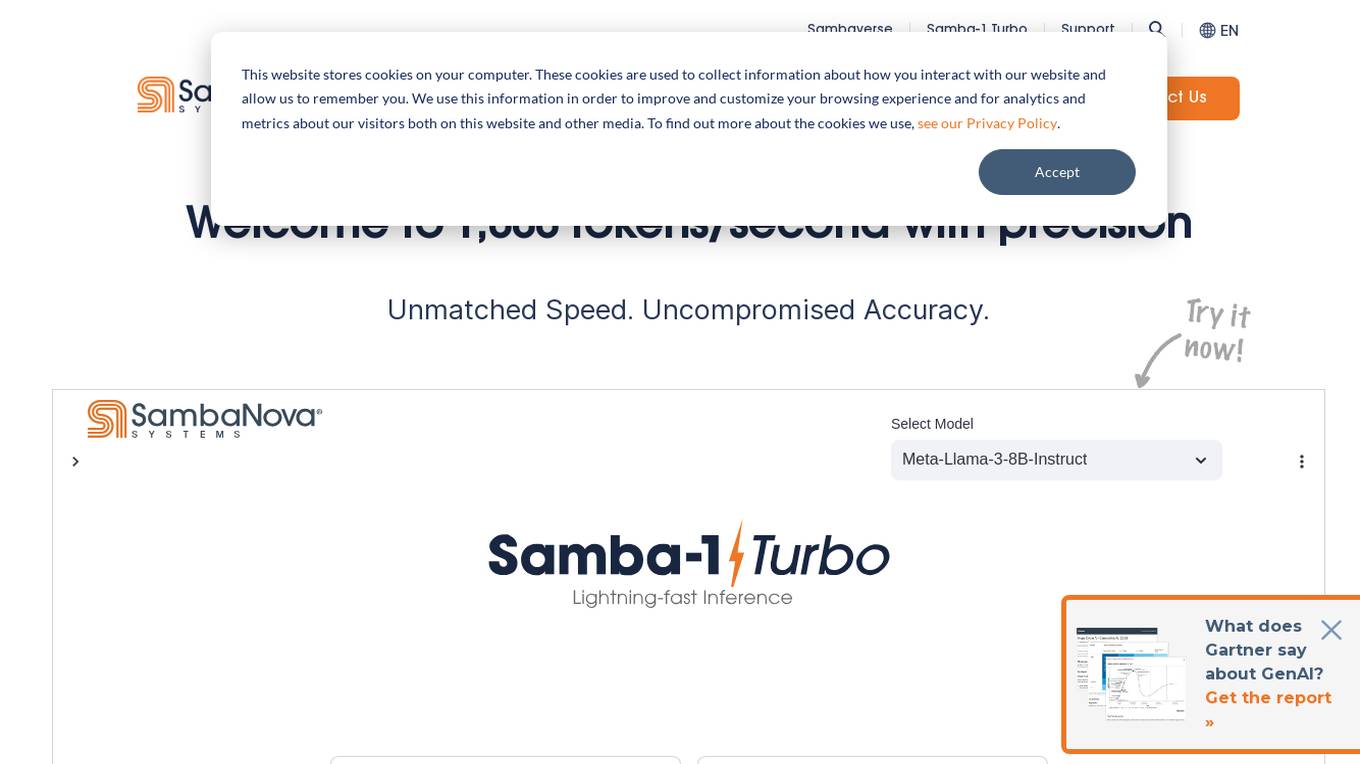
SambaNova Systems
SambaNova Systems is an AI platform that revolutionizes AI workloads by offering an enterprise-grade full stack platform purpose-built for generative AI. It provides state-of-the-art AI and deep learning capabilities to help customers outcompete their peers. SambaNova delivers the only enterprise-grade full stack platform, from chips to models, designed for generative AI in the enterprise. The platform includes the SN40L Full Stack Platform with 1T+ parameter models, Composition of Experts, and Samba Apps. SambaNova also offers resources to accelerate AI journeys and solutions for various industries like financial services, healthcare, manufacturing, and more.
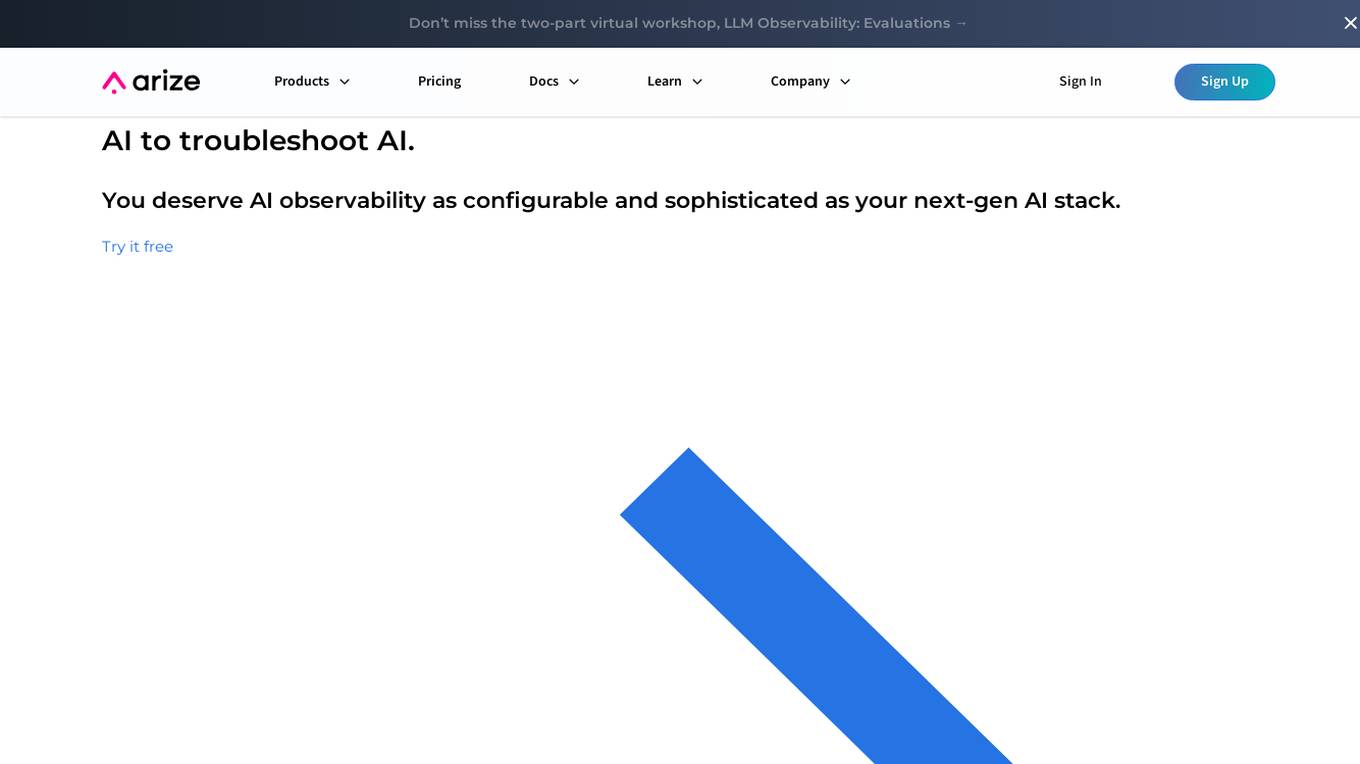
Arize AI
Arize AI is an AI observability tool designed to monitor and troubleshoot AI models in production. It provides configurable and sophisticated observability features to ensure the performance and reliability of next-gen AI stacks. With a focus on ML observability, Arize offers automated setup, a simple API, and a lightweight package for tracking model performance over time. The tool is trusted by top companies for its ability to surface insights, simplify issue root causing, and provide a dedicated customer success manager. Arize is battle-hardened for real-world scenarios, offering unparalleled performance, scalability, security, and compliance with industry standards like SOC 2 Type II and HIPAA.
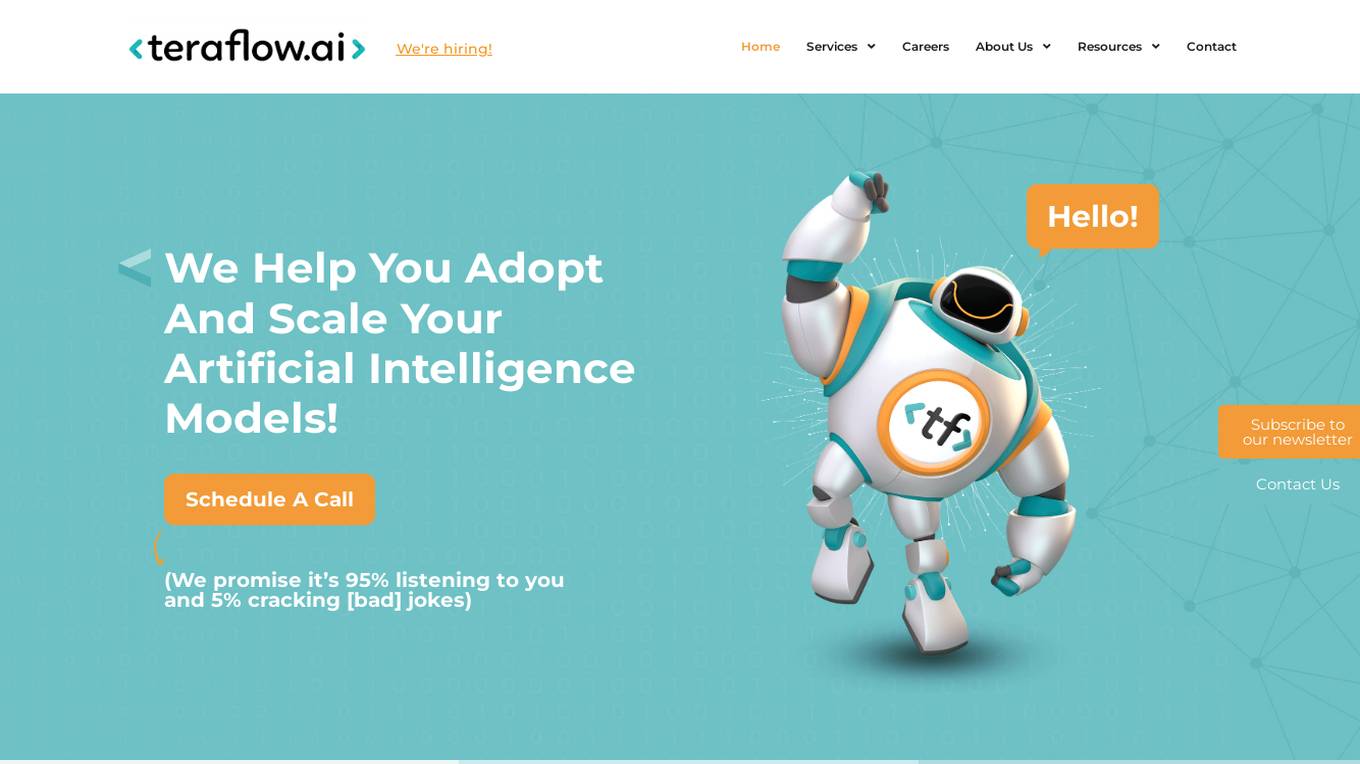
Teraflow.ai
Teraflow.ai is an AI-enablement company that specializes in helping businesses adopt and scale their artificial intelligence models. They offer services in data engineering, ML engineering, AI/UX, and cloud architecture. Teraflow.ai assists clients in fixing data issues, boosting ML model performance, and integrating AI into legacy customer journeys. Their team of experts deploys solutions quickly and efficiently, using modern practices and hyper scaler technology. The company focuses on making AI work by providing fixed pricing solutions, building team capabilities, and utilizing agile-scrum structures for innovation. Teraflow.ai also offers certifications in GCP and AWS, and partners with leading tech companies like HashiCorp, AWS, and Microsoft Azure.
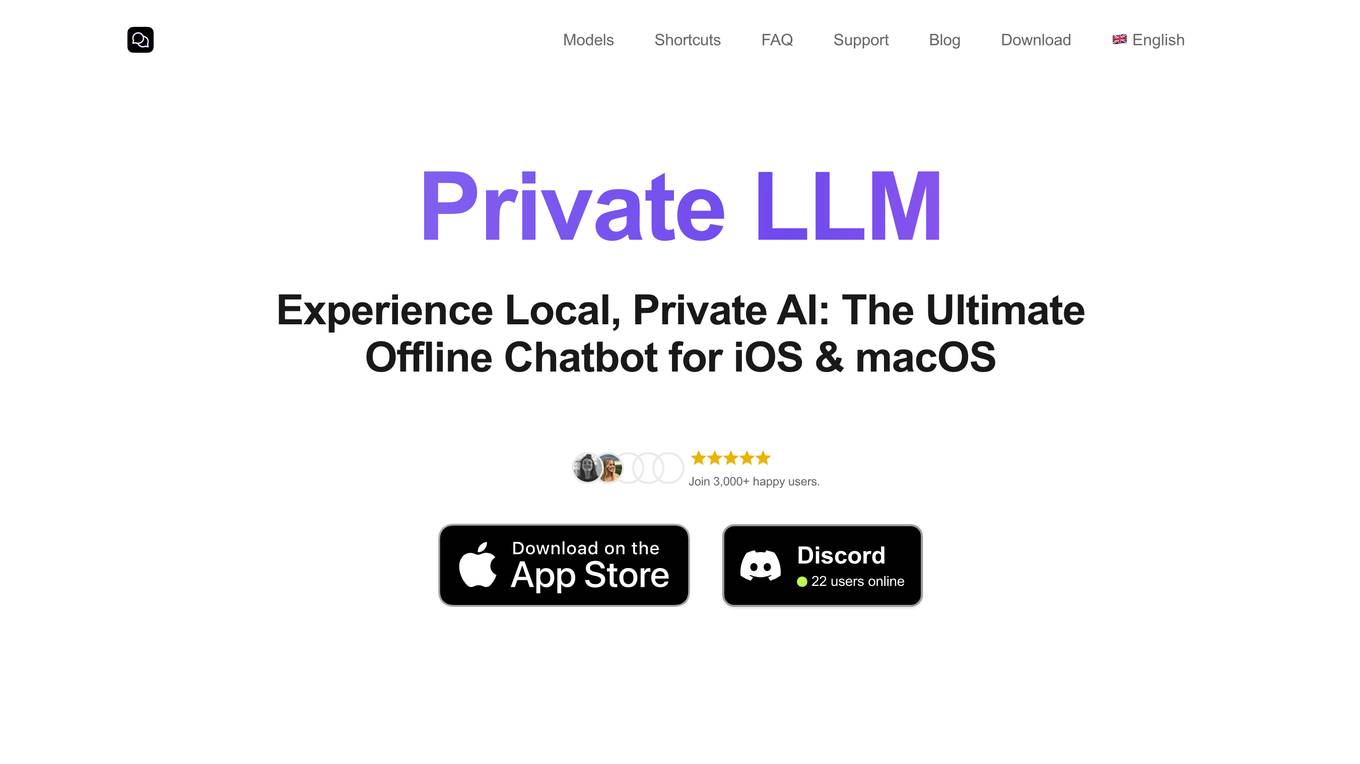
Private LLM
Private LLM is a secure, local, and private AI chatbot designed for iOS and macOS devices. It operates offline, ensuring that user data remains on the device, providing a safe and private experience. The application offers a range of features for text generation and language assistance, utilizing state-of-the-art quantization techniques to deliver high-quality on-device AI experiences without compromising privacy. Users can access a variety of open-source LLM models, integrate AI into Siri and Shortcuts, and benefit from AI language services across macOS apps. Private LLM stands out for its superior model performance and commitment to user privacy, making it a smart and secure tool for creative and productive tasks.
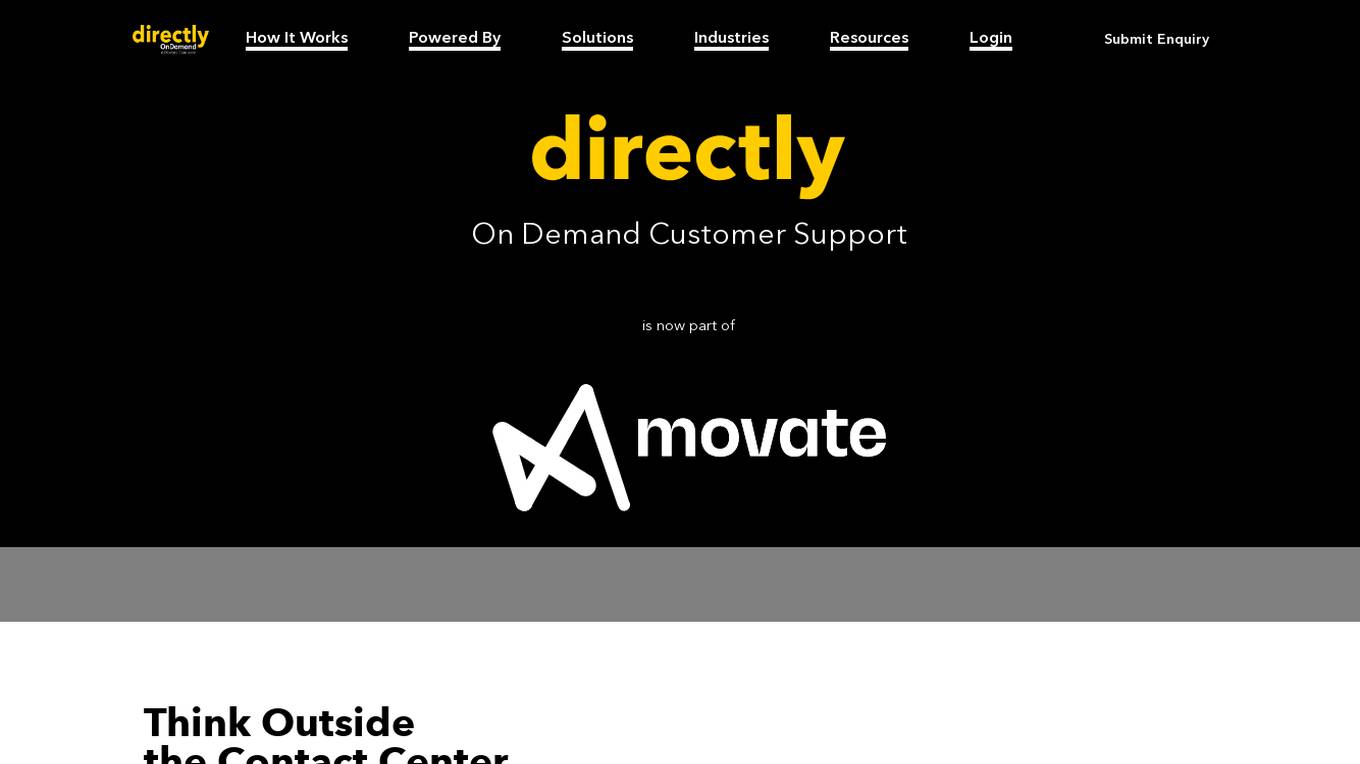
Directly
Directly is an AI-powered platform that offers on-demand and automated customer support solutions. The platform connects organizations with highly qualified experts who can handle customer inquiries efficiently. By leveraging AI and machine learning, Directly automates repetitive questions, improving business continuity and digital transformation. The platform follows a pay-for-performance compensation model and provides global support in multiple languages. Directly aims to enhance customer satisfaction, reduce contact center volume, and save costs for businesses.
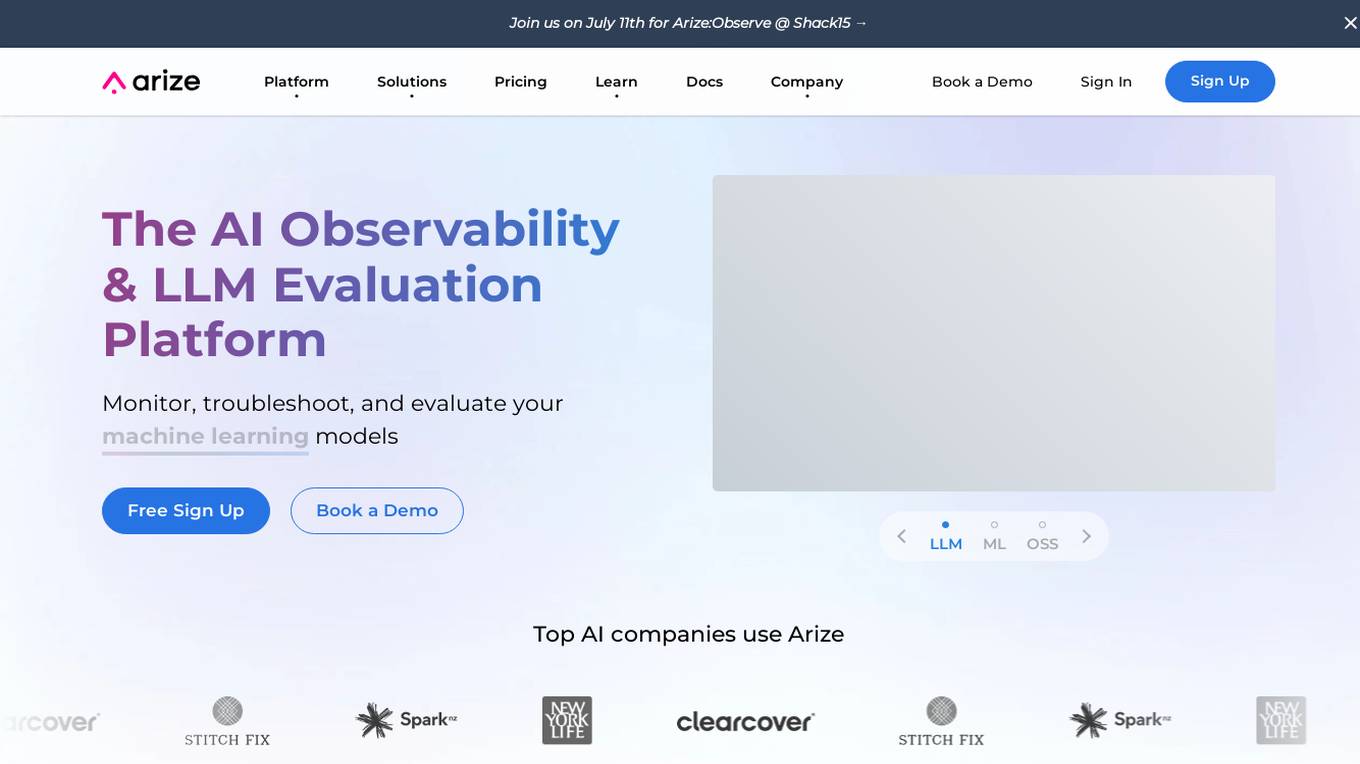
Arize AI
Arize AI is an AI Observability & LLM Evaluation Platform that helps you monitor, troubleshoot, and evaluate your machine learning models. With Arize, you can catch model issues, troubleshoot root causes, and continuously improve performance. Arize is used by top AI companies to surface, resolve, and improve their models.
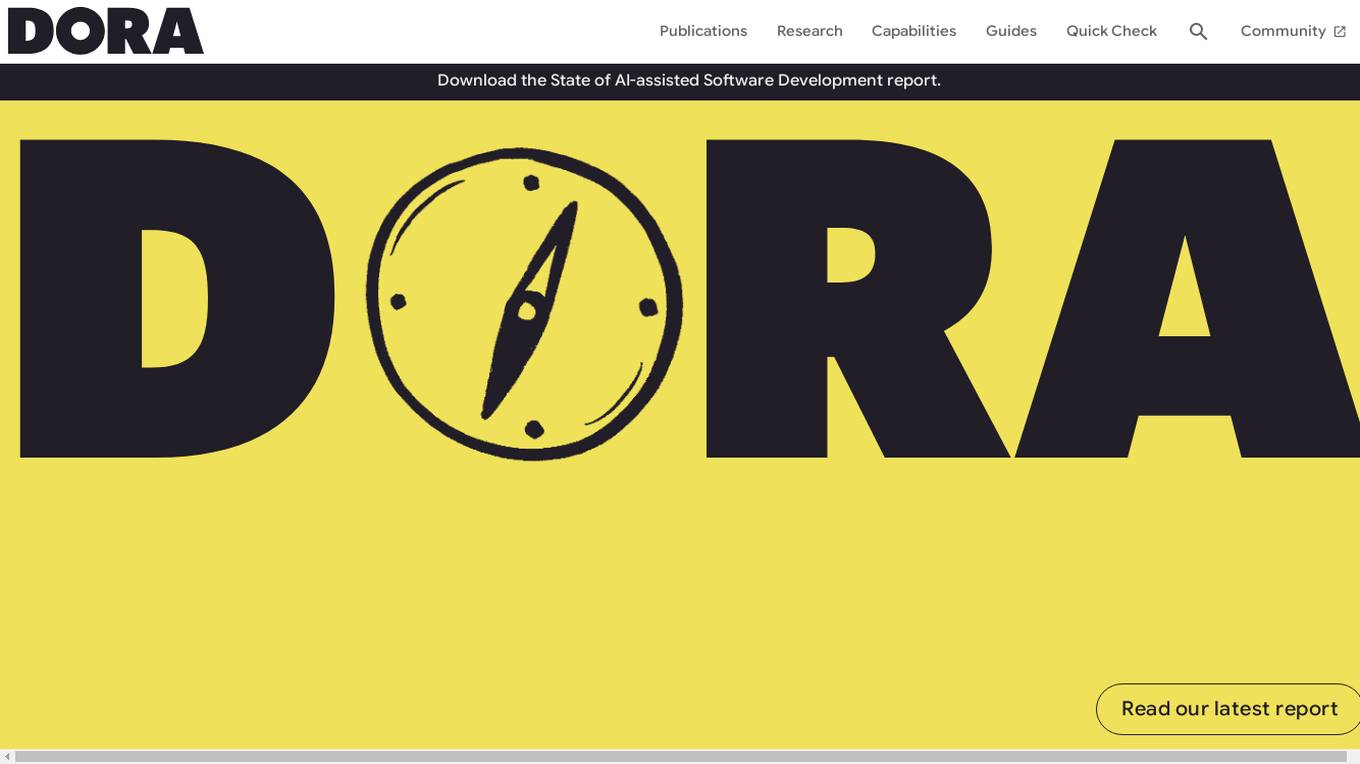
DORA
DORA is a research program by Google Cloud that focuses on understanding the capabilities driving software delivery and operations performance. It helps teams apply these capabilities to enhance organizational performance. The program introduces the DORA AI Capabilities Model, identifying key technical and cultural practices that amplify the positive impacts of AI on performance. DORA offers resources, guides, and tools like the DORA Quick Check to help organizations improve their software delivery goals.
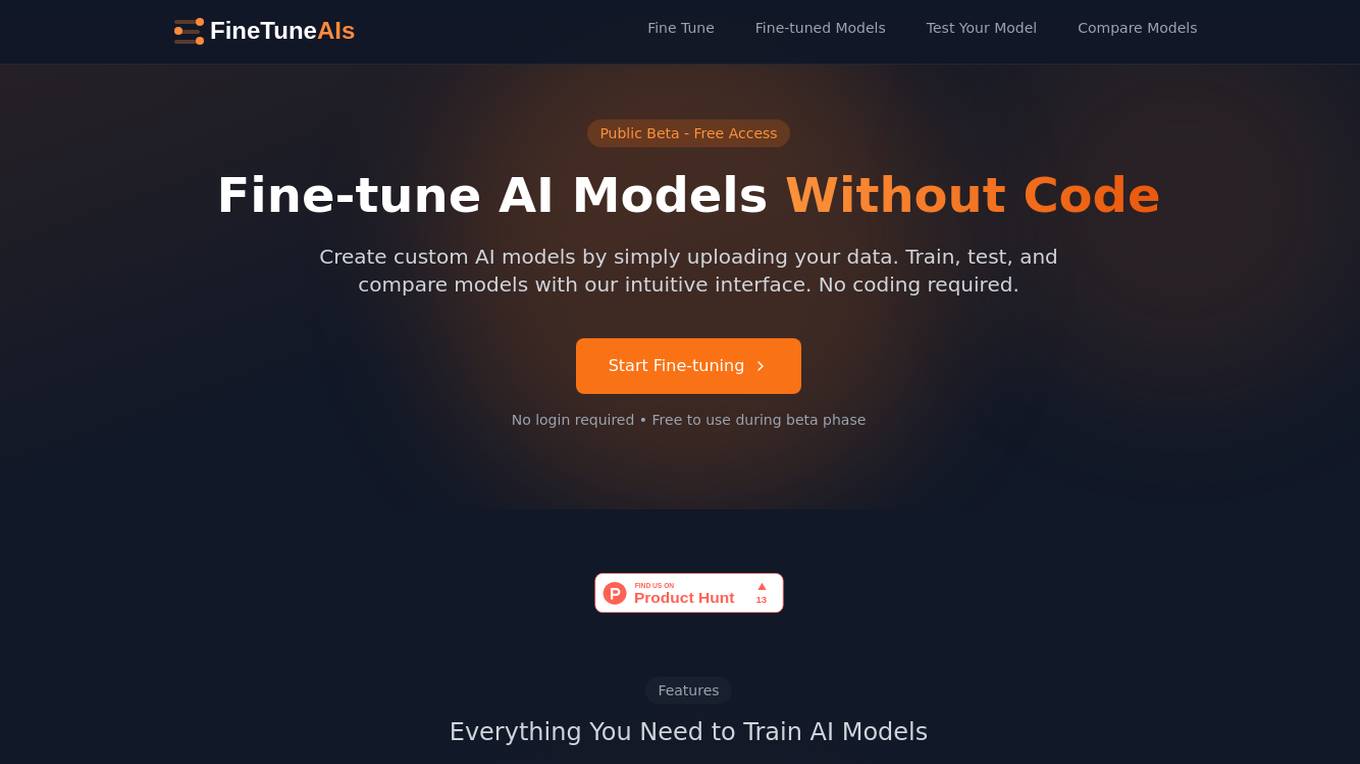
FineTuneAIs.com
FineTuneAIs.com is a platform that specializes in custom AI model fine-tuning. Users can fine-tune their AI models to achieve better performance and accuracy. The platform requires JavaScript to be enabled for optimal functionality.
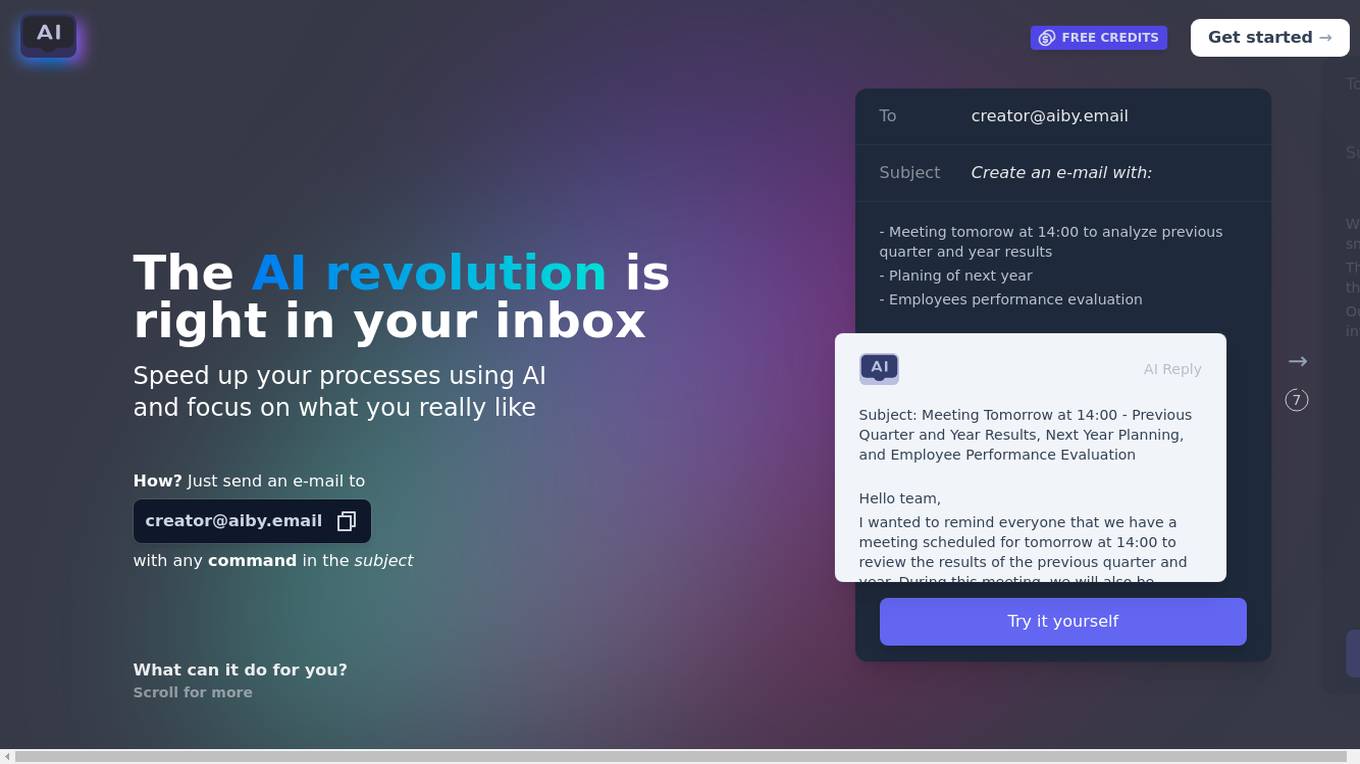
AIby.email
AIby.email is an AI-powered email assistant that helps you write better emails, faster. It uses natural language processing to understand your intent and generate personalized email responses. AIby.email also offers a variety of other features, such as email scheduling, tracking, and analytics.
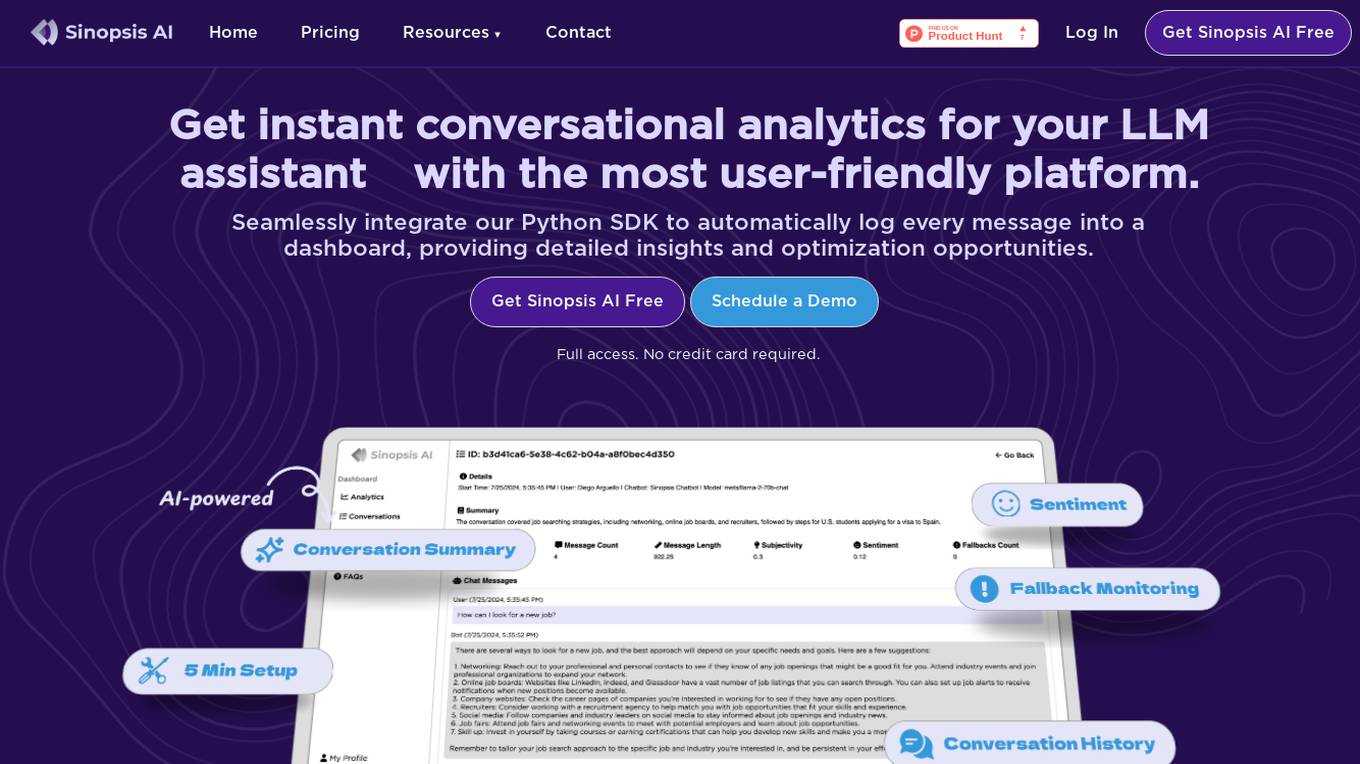
Sinopsis AI
Sinopsis AI is an analytics tool designed for AI chatbots, offering detailed insights into user interactions to enhance response accuracy and user experience. It seamlessly integrates with existing systems, providing real-time data updates and customizable analytics reports. With a user-friendly platform and model-agnostic compatibility, Sinopsis AI empowers businesses to optimize their chatbot performance and improve customer engagement strategies.

BugFree.ai
BugFree.ai is an AI-powered platform designed to help users practice system design and behavior interviews, similar to Leetcode. The platform offers a range of features to assist users in preparing for technical interviews, including mock interviews, real-time feedback, and personalized study plans. With BugFree.ai, users can improve their problem-solving skills and gain confidence in tackling complex interview questions.

xAI Grok
xAI Grok is a visual analytics platform that helps users understand and interpret machine learning models. It provides a variety of tools for visualizing and exploring model data, including interactive charts, graphs, and tables. xAI Grok also includes a library of pre-built visualizations that can be used to quickly get started with model analysis.
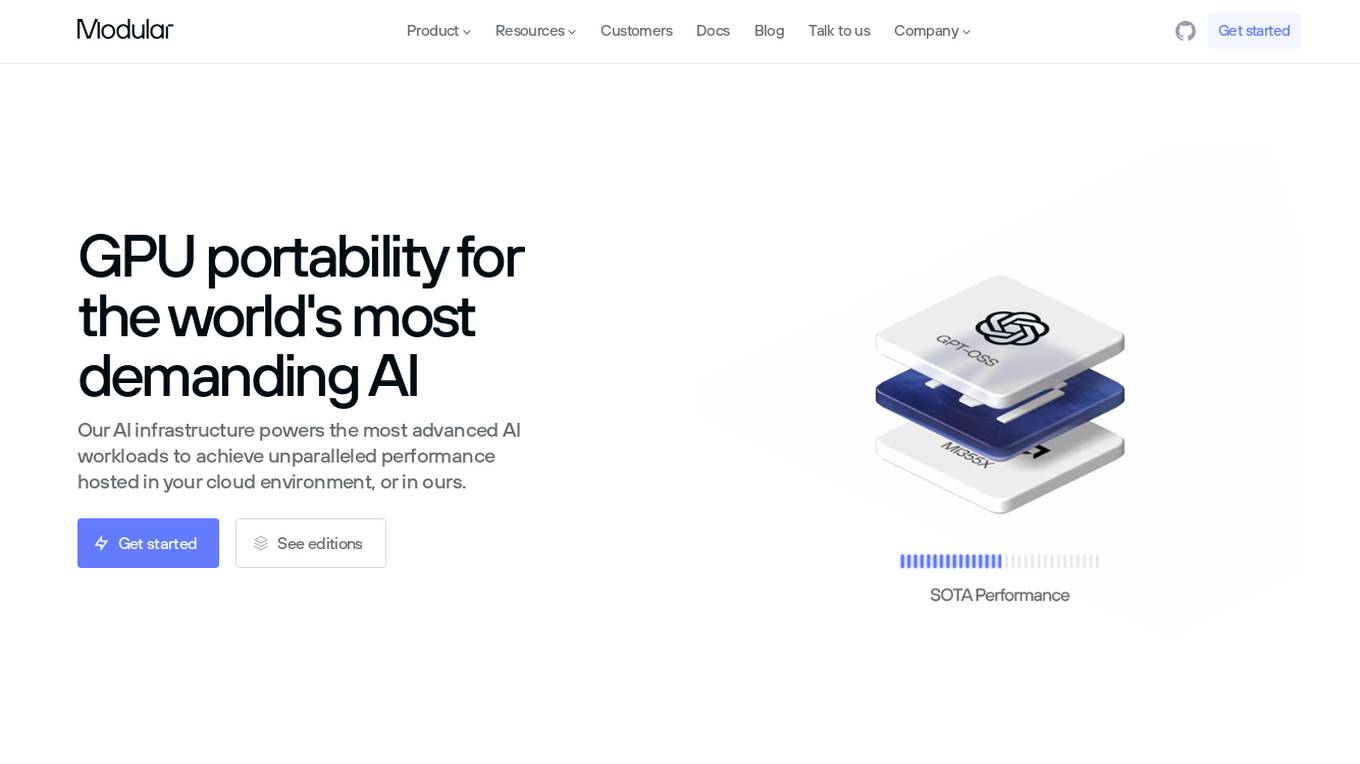
Modular
Modular is a fast, scalable Gen AI inference platform that offers a comprehensive suite of tools and resources for AI development and deployment. It provides solutions for AI model development, deployment options, AI inference, research, and resources like documentation, models, tutorials, and step-by-step guides. Modular supports GPU and CPU performance, intelligent scaling to any cluster, and offers deployment options for various editions. The platform enables users to build agent workflows, utilize AI retrieval and controlled generation, develop chatbots, engage in code generation, and improve resource utilization through batch processing.
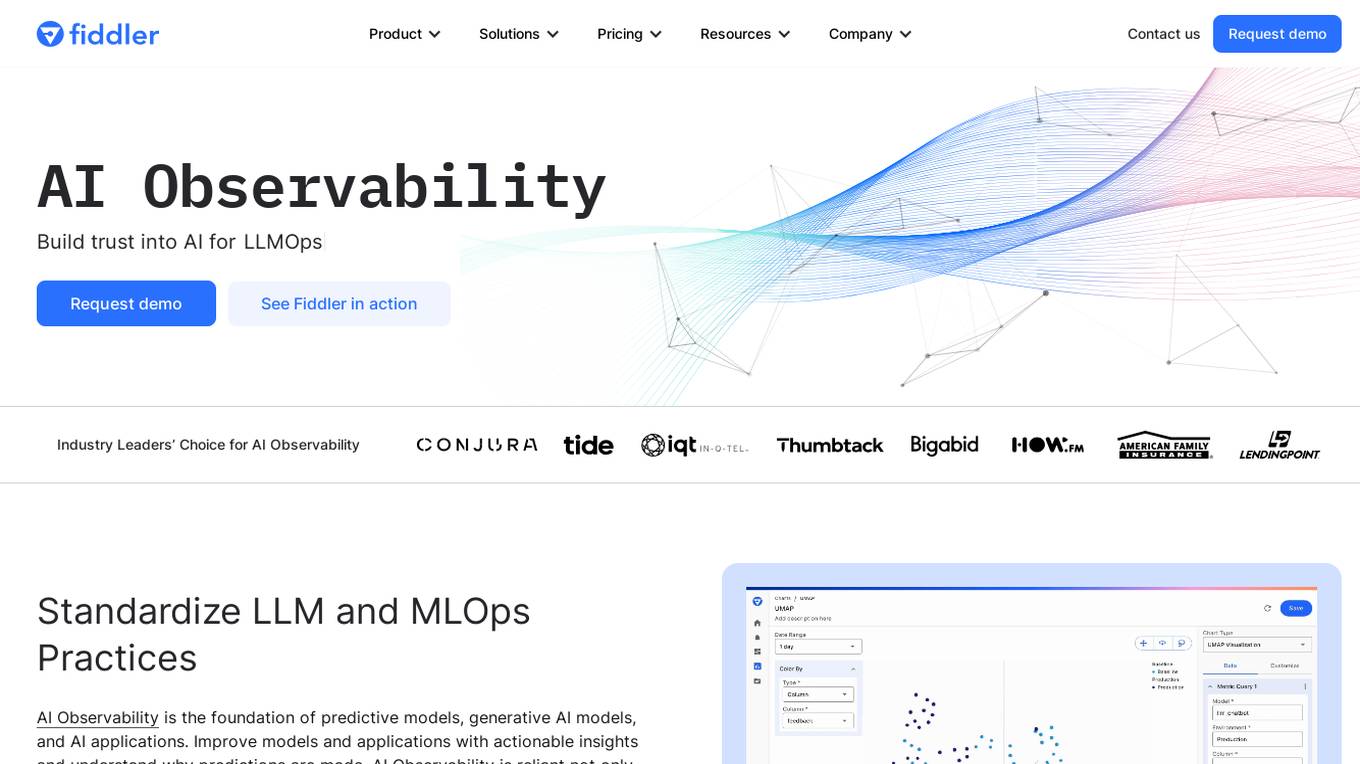
Fiddler AI
Fiddler AI is an AI Observability platform that provides tools for monitoring, explaining, and improving the performance of AI models. It offers a range of capabilities, including explainable AI, NLP and CV model monitoring, LLMOps, and security features. Fiddler AI helps businesses to build and deploy high-performing AI solutions at scale.
11 - Open Source AI Tools
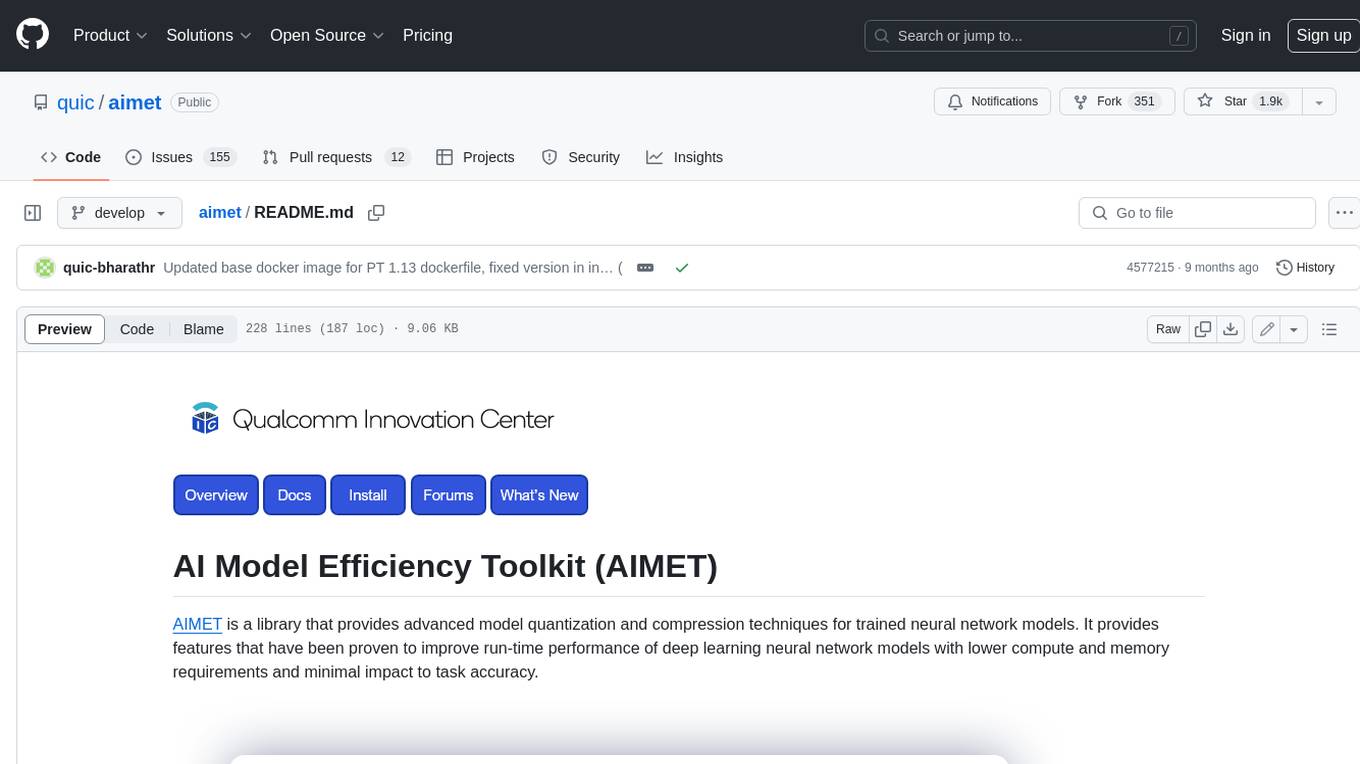
aimet
AIMET is a library that provides advanced model quantization and compression techniques for trained neural network models. It provides features that have been proven to improve run-time performance of deep learning neural network models with lower compute and memory requirements and minimal impact to task accuracy. AIMET is designed to work with PyTorch, TensorFlow and ONNX models. We also host the AIMET Model Zoo - a collection of popular neural network models optimized for 8-bit inference. We also provide recipes for users to quantize floating point models using AIMET.
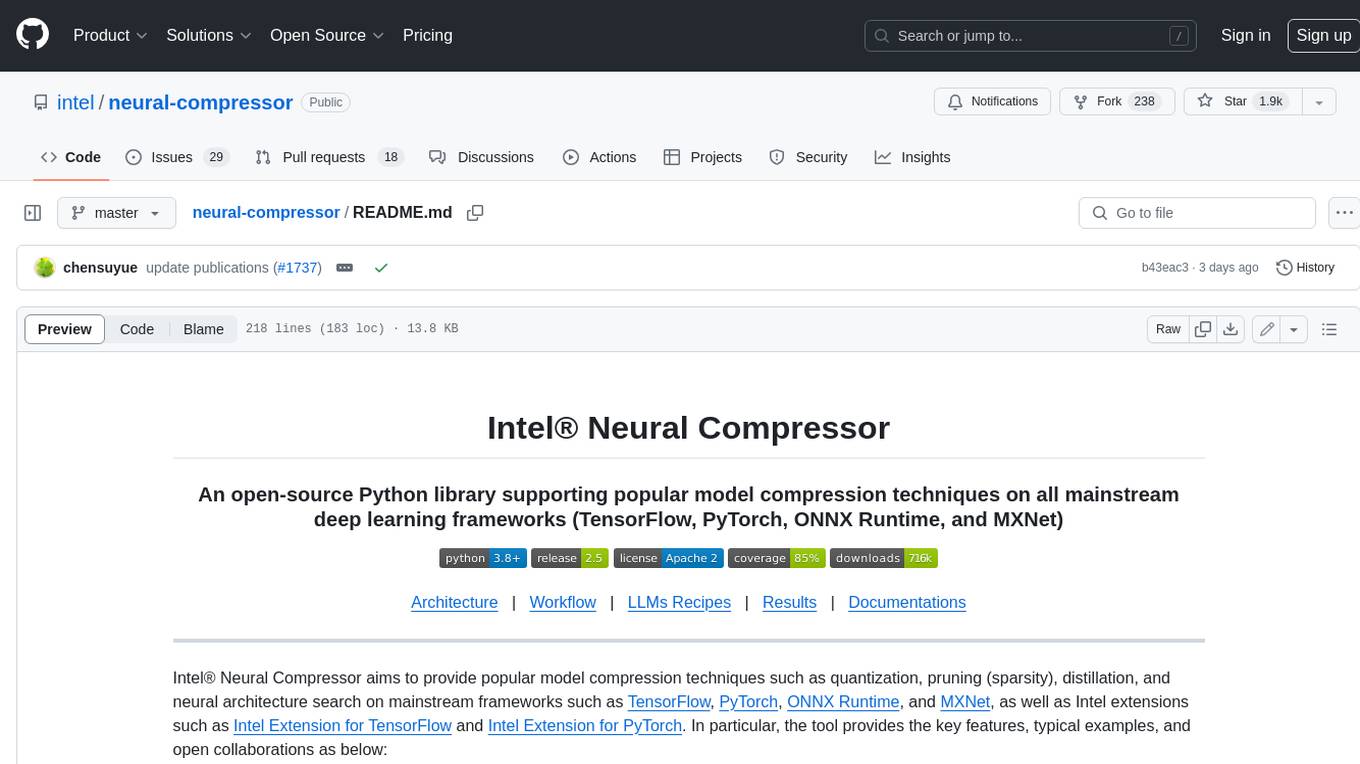
neural-compressor
Intel® Neural Compressor is an open-source Python library that supports popular model compression techniques such as quantization, pruning (sparsity), distillation, and neural architecture search on mainstream frameworks such as TensorFlow, PyTorch, ONNX Runtime, and MXNet. It provides key features, typical examples, and open collaborations, including support for a wide range of Intel hardware, validation of popular LLMs, and collaboration with cloud marketplaces, software platforms, and open AI ecosystems.
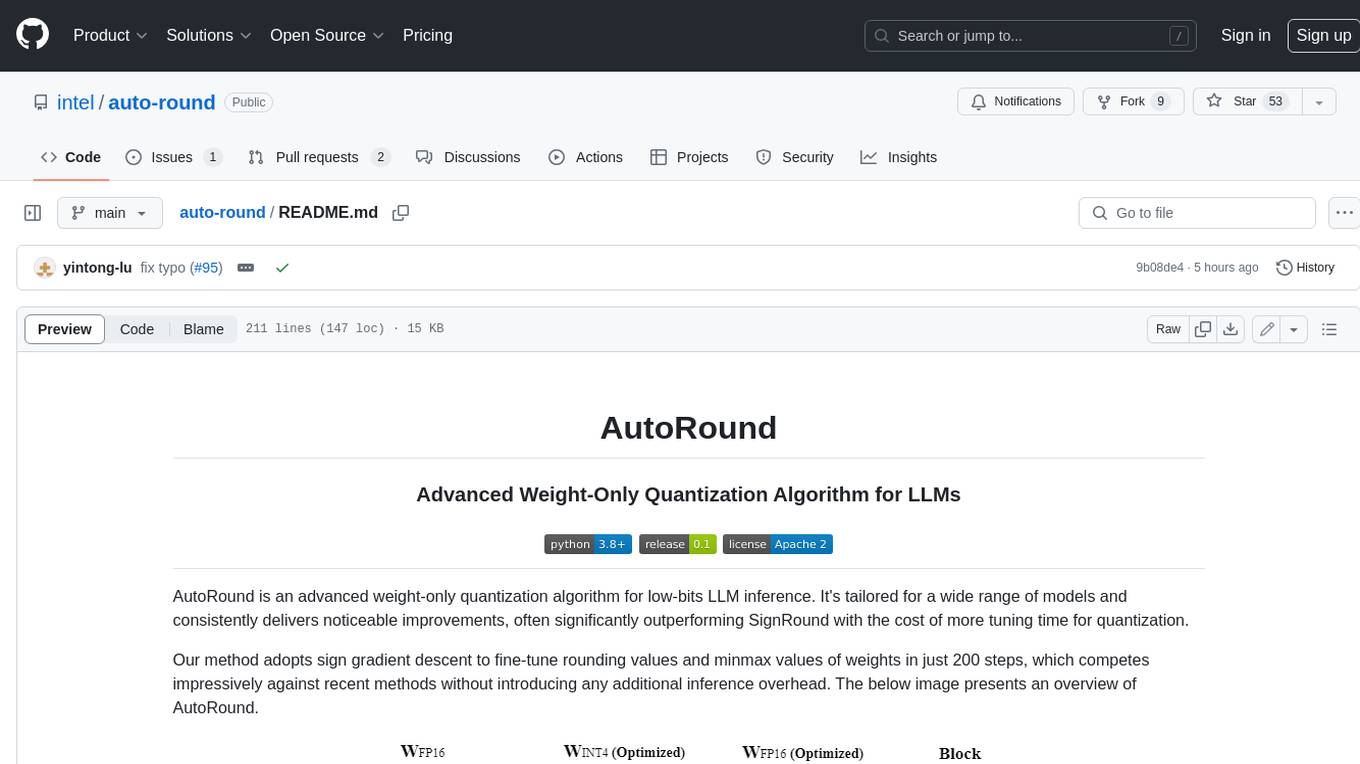
auto-round
AutoRound is an advanced weight-only quantization algorithm for low-bits LLM inference. It competes impressively against recent methods without introducing any additional inference overhead. The method adopts sign gradient descent to fine-tune rounding values and minmax values of weights in just 200 steps, often significantly outperforming SignRound with the cost of more tuning time for quantization. AutoRound is tailored for a wide range of models and consistently delivers noticeable improvements.
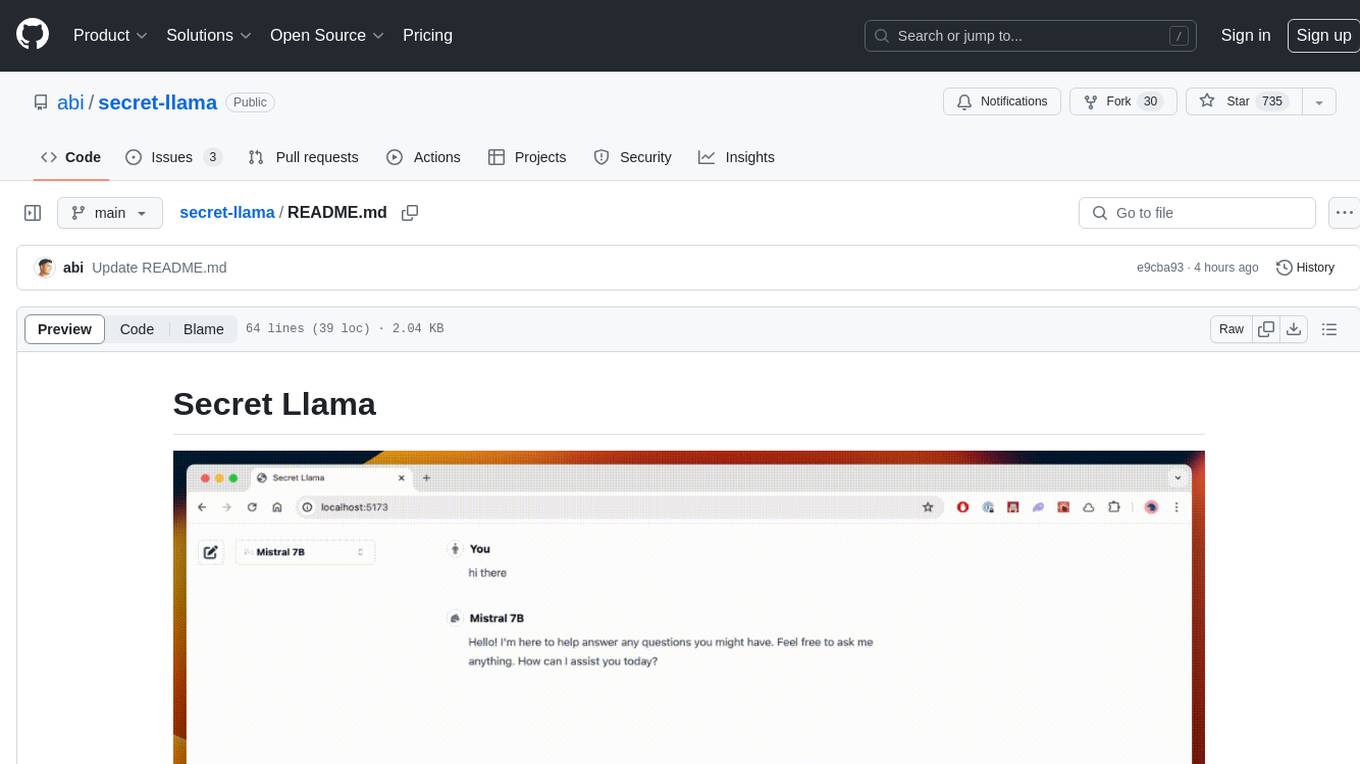
secret-llama
Entirely-in-browser, fully private LLM chatbot supporting Llama 3, Mistral and other open source models. Fully private = No conversation data ever leaves your computer. Runs in the browser = No server needed and no install needed! Works offline. Easy-to-use interface on par with ChatGPT, but for open source LLMs. System requirements include a modern browser with WebGPU support. Supported models include TinyLlama-1.1B-Chat-v0.4-q4f32_1-1k, Llama-3-8B-Instruct-q4f16_1, Phi1.5-q4f16_1-1k, and Mistral-7B-Instruct-v0.2-q4f16_1. Looking for contributors to improve the interface, support more models, speed up initial model loading time, and fix bugs.
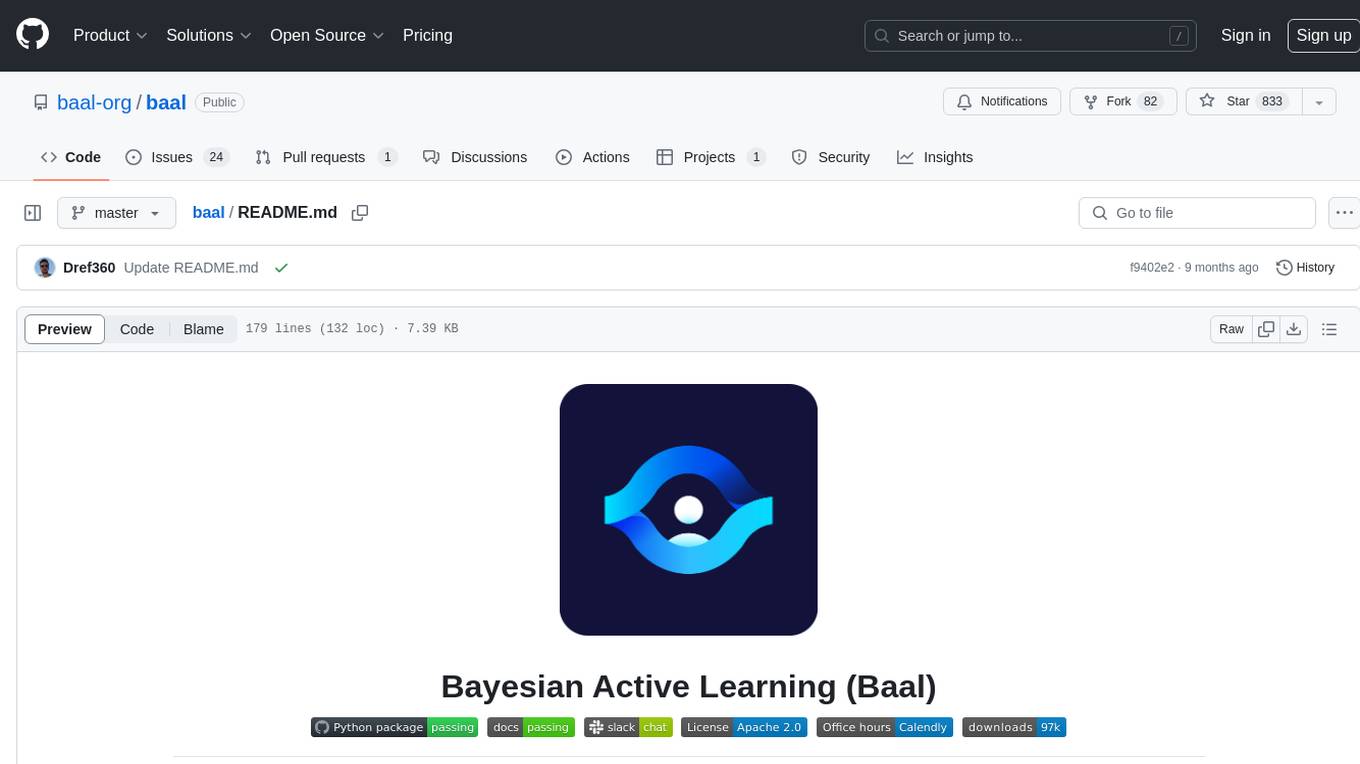
baal
Baal is an active learning library that supports both industrial applications and research use cases. It provides a framework for Bayesian active learning methods such as Monte-Carlo Dropout, MCDropConnect, Deep ensembles, and Semi-supervised learning. Baal helps in labeling the most uncertain items in the dataset pool to improve model performance and reduce annotation effort. The library is actively maintained by a dedicated team and has been used in various research papers for production and experimentation.
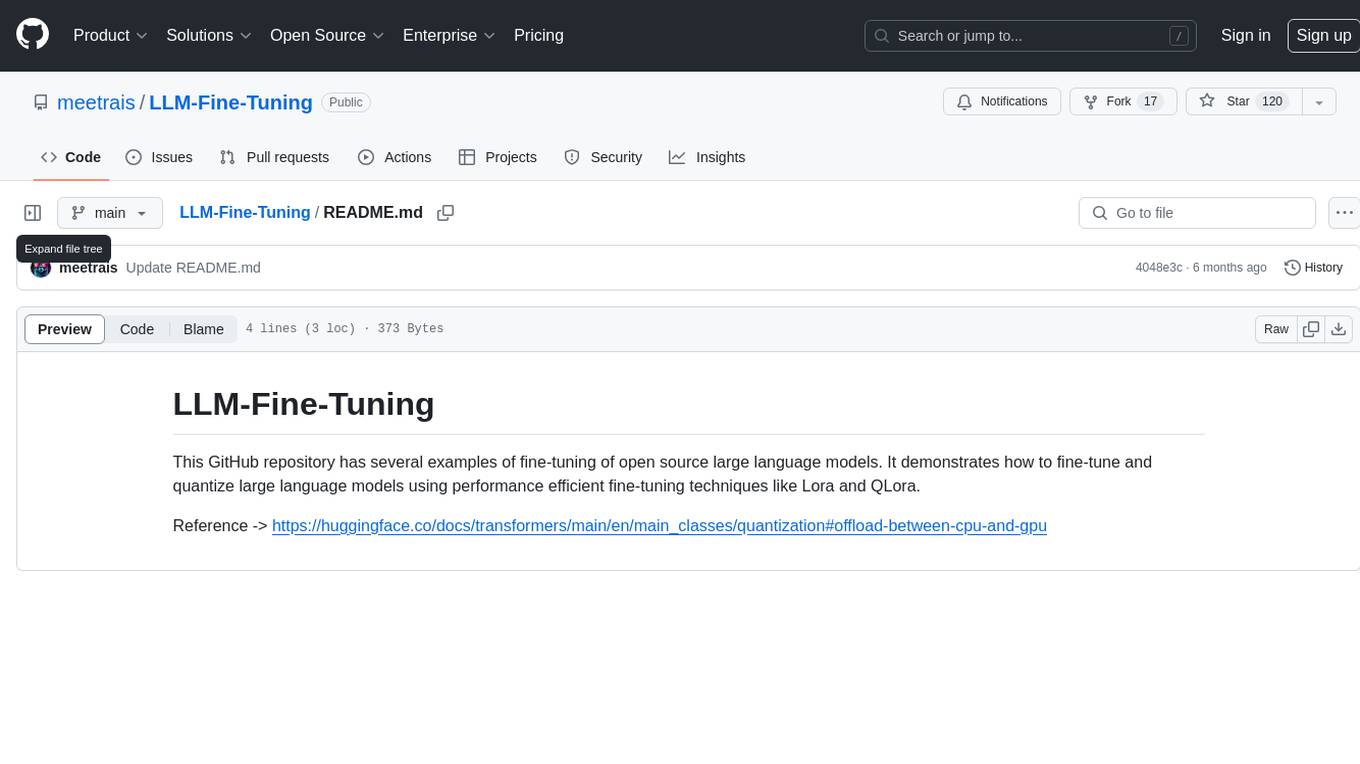
LLM-Fine-Tuning
This GitHub repository contains examples of fine-tuning open source large language models. It showcases the process of fine-tuning and quantizing large language models using efficient techniques like Lora and QLora. The repository serves as a practical guide for individuals looking to optimize the performance of language models through fine-tuning.
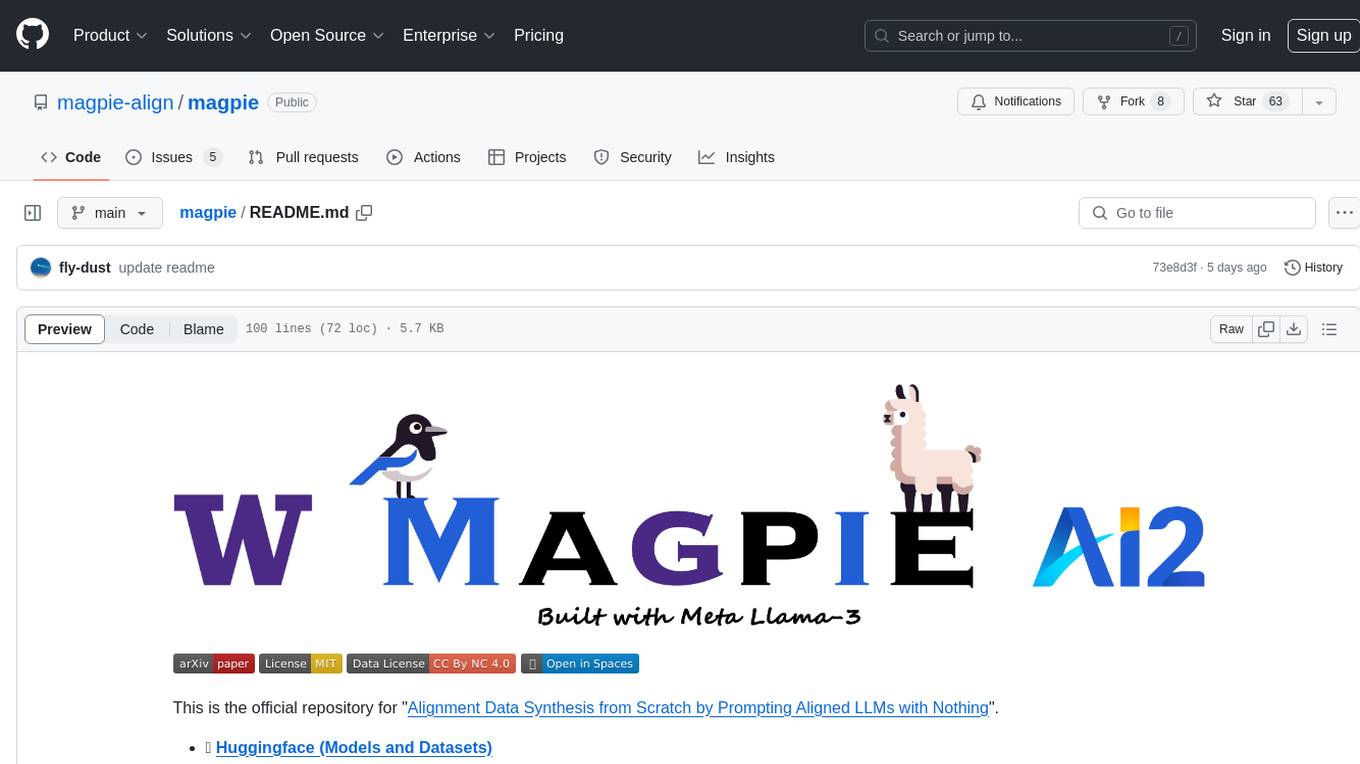
magpie
This is the official repository for 'Alignment Data Synthesis from Scratch by Prompting Aligned LLMs with Nothing'. Magpie is a tool designed to synthesize high-quality instruction data at scale by extracting it directly from an aligned Large Language Models (LLMs). It aims to democratize AI by generating large-scale alignment data and enhancing the transparency of model alignment processes. Magpie has been tested on various model families and can be used to fine-tune models for improved performance on alignment benchmarks such as AlpacaEval, ArenaHard, and WildBench.
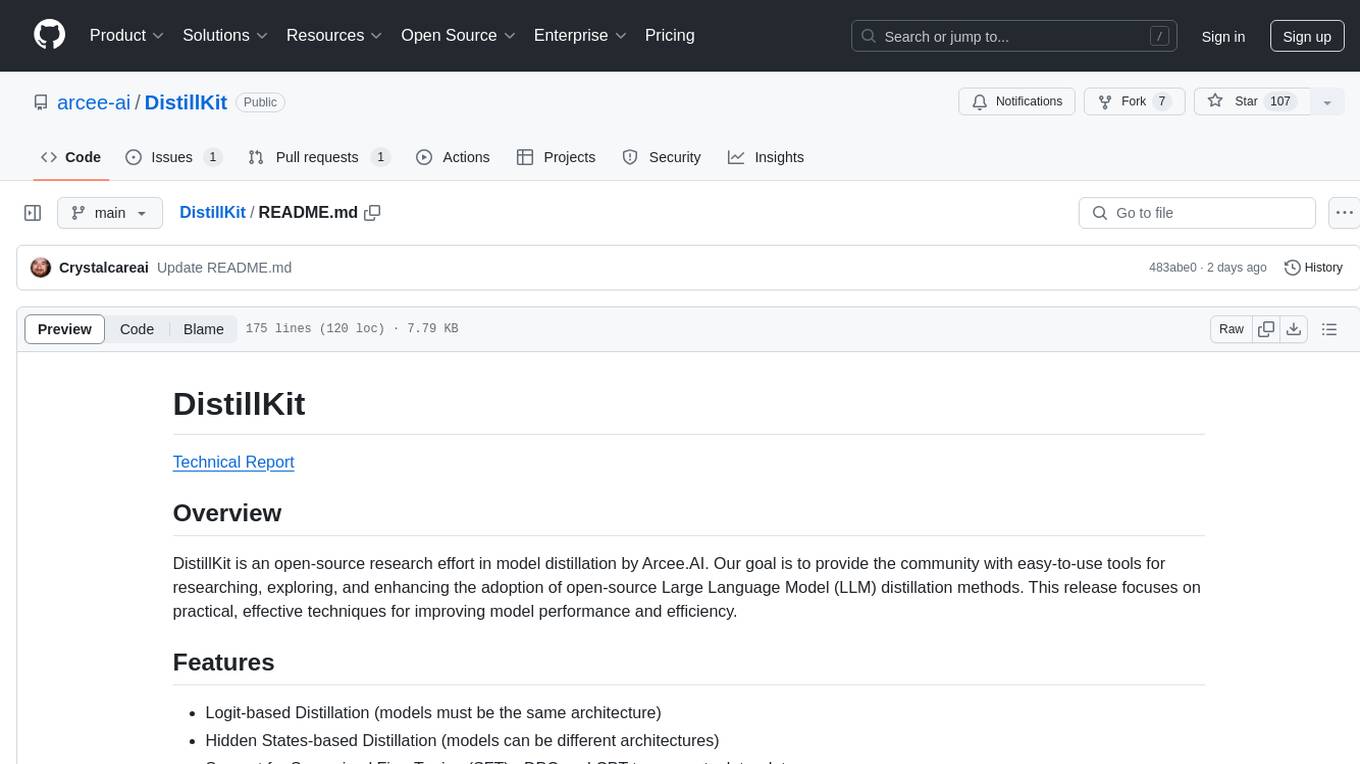
DistillKit
DistillKit is an open-source research effort by Arcee.AI focusing on model distillation methods for Large Language Models (LLMs). It provides tools for improving model performance and efficiency through logit-based and hidden states-based distillation methods. The tool supports supervised fine-tuning and aims to enhance the adoption of open-source LLM distillation techniques.
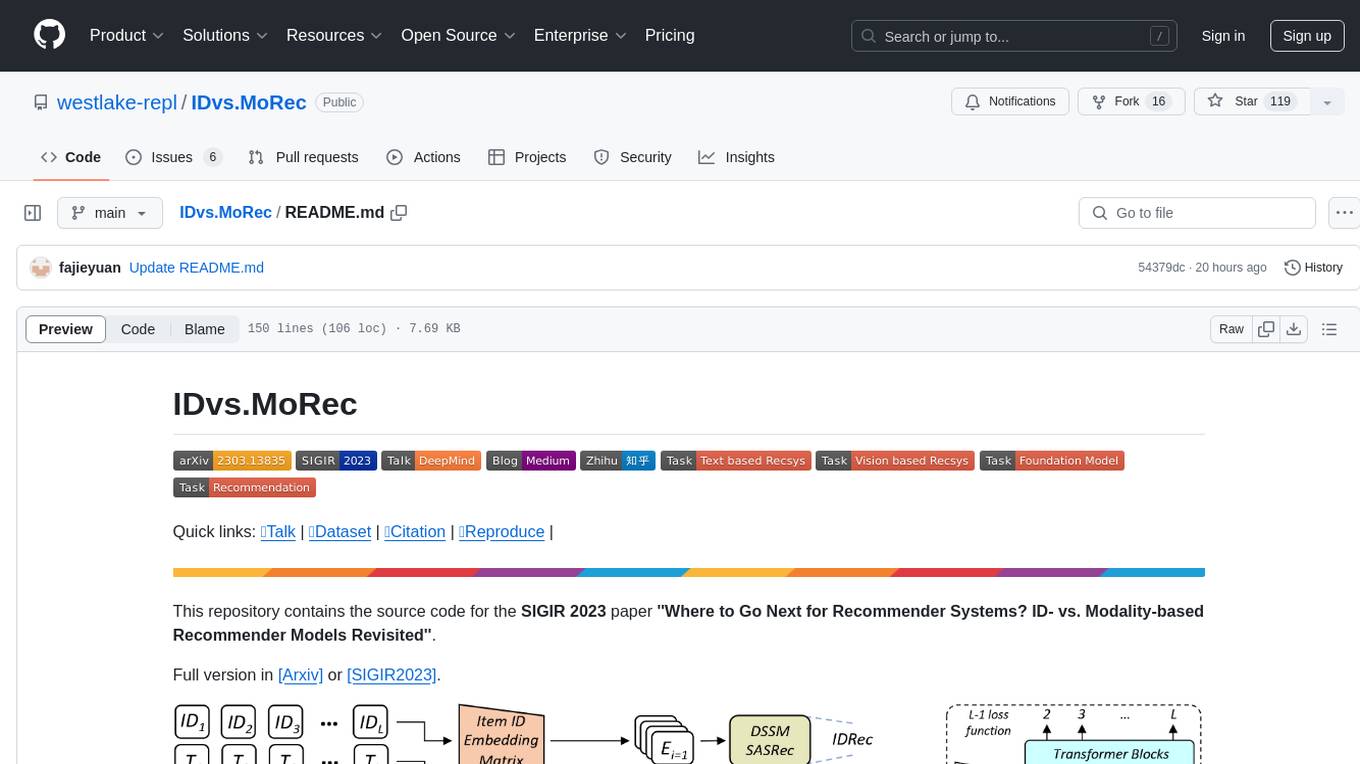
IDvs.MoRec
This repository contains the source code for the SIGIR 2023 paper 'Where to Go Next for Recommender Systems? ID- vs. Modality-based Recommender Models Revisited'. It provides resources for evaluating foundation, transferable, multi-modal, and LLM recommendation models, along with datasets, pre-trained models, and training strategies for IDRec and MoRec using in-batch debiased cross-entropy loss. The repository also offers large-scale datasets, code for SASRec with in-batch debias cross-entropy loss, and information on joining the lab for research opportunities.
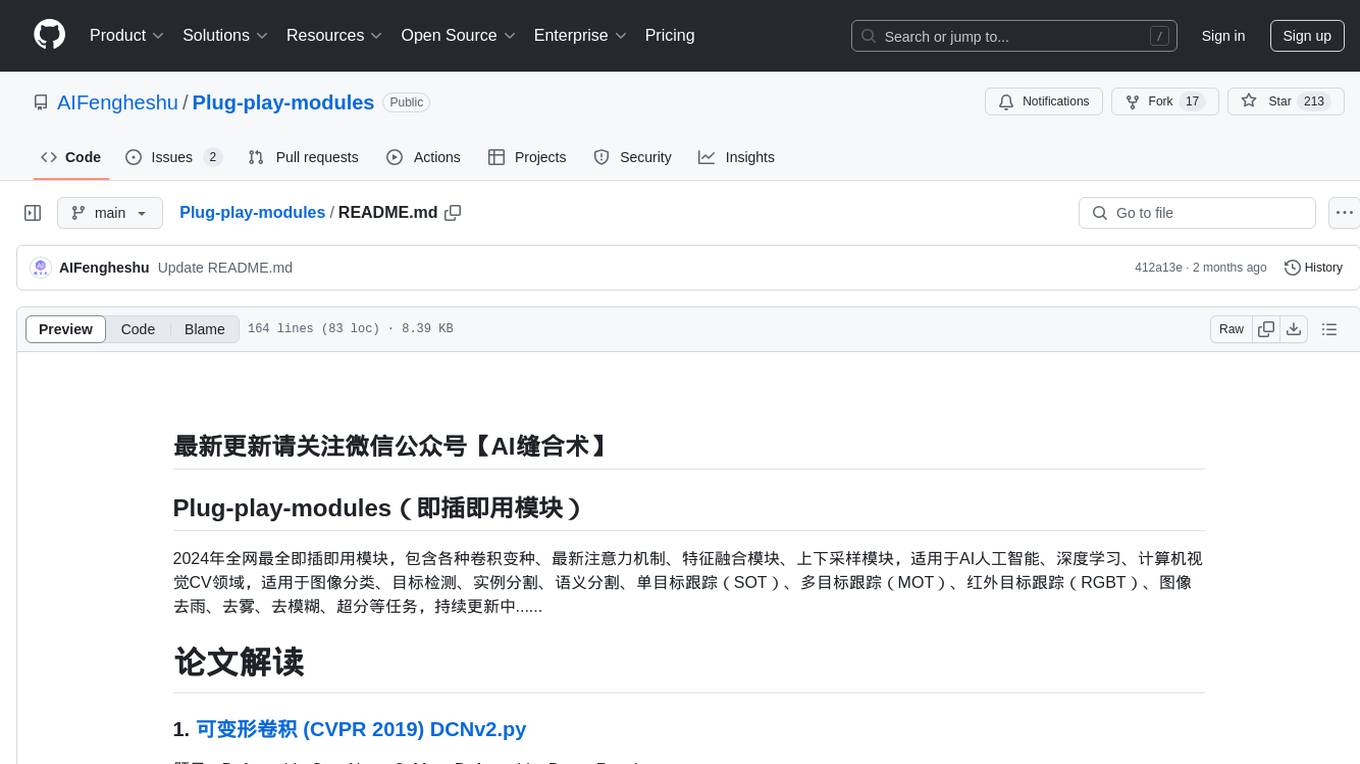
Plug-play-modules
Plug-play-modules is a comprehensive collection of plug-and-play modules for AI, deep learning, and computer vision applications. It includes various convolution variants, latest attention mechanisms, feature fusion modules, up-sampling/down-sampling modules, suitable for tasks like image classification, object detection, instance segmentation, semantic segmentation, single object tracking (SOT), multi-object tracking (MOT), infrared object tracking (RGBT), image de-raining, de-fogging, de-blurring, super-resolution, and more. The modules are designed to enhance model performance and feature extraction capabilities across various tasks.
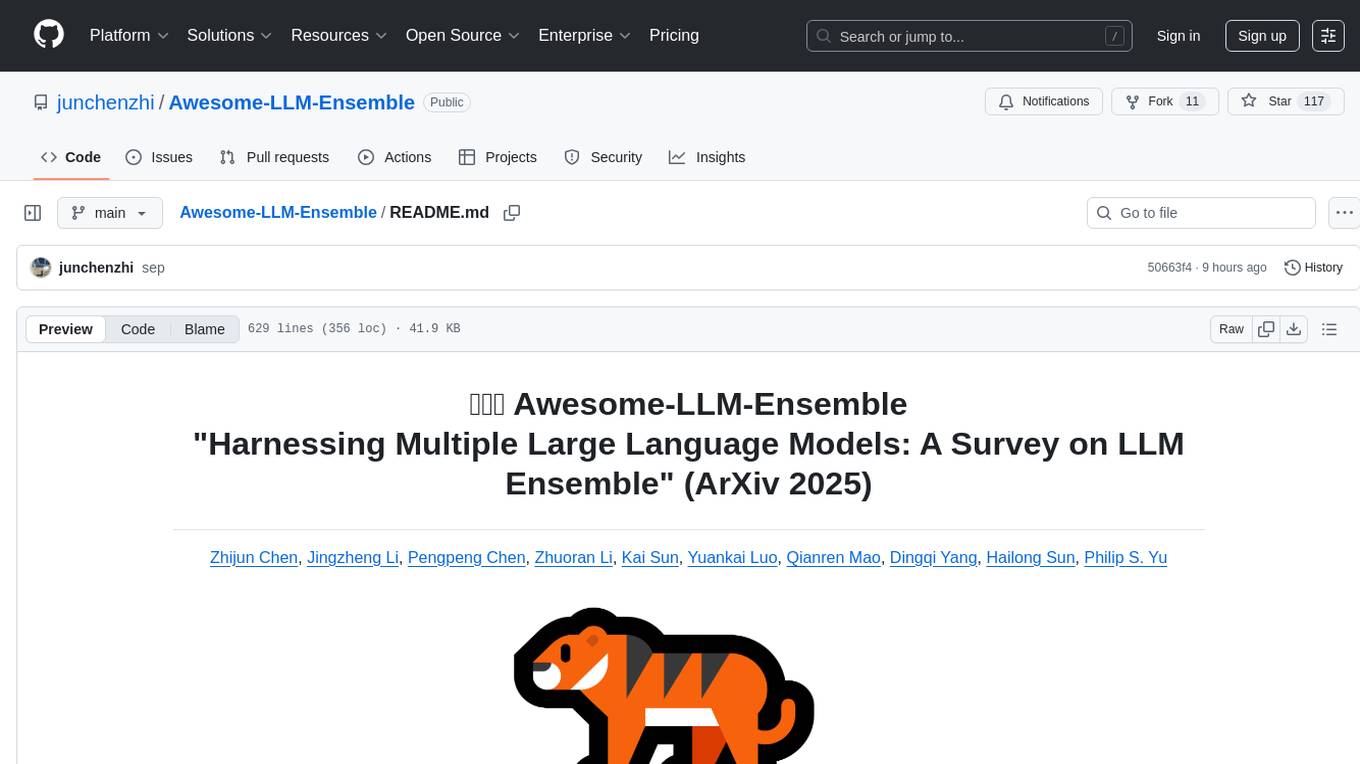
Awesome-LLM-Ensemble
Awesome-LLM-Ensemble is a collection of papers on LLM Ensemble, focusing on the comprehensive use of multiple large language models to benefit from their individual strengths. It provides a systematic review of recent developments in LLM Ensemble, including taxonomy, methods for ensemble before, during, and after inference, benchmarks, applications, and related surveys.
20 - OpenAI Gpts
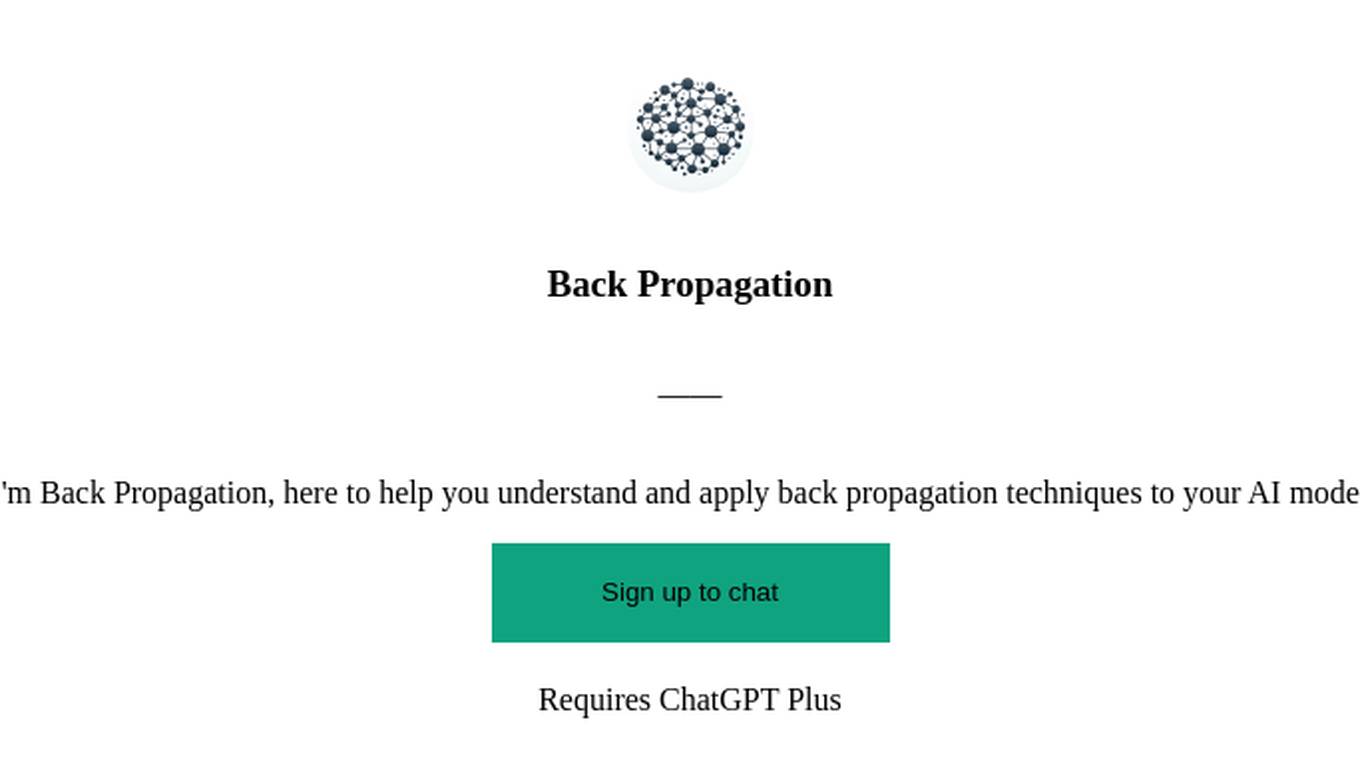
Back Propagation
I'm Back Propagation, here to help you understand and apply back propagation techniques to your AI models.

Create A Business Model Canvas For Your Business
Let's get started by telling me about your business: What do you offer? Who do you serve? ------------------------------------------------------- Need help Prompt Engineering? Reach out on LinkedIn: StephenHnilica
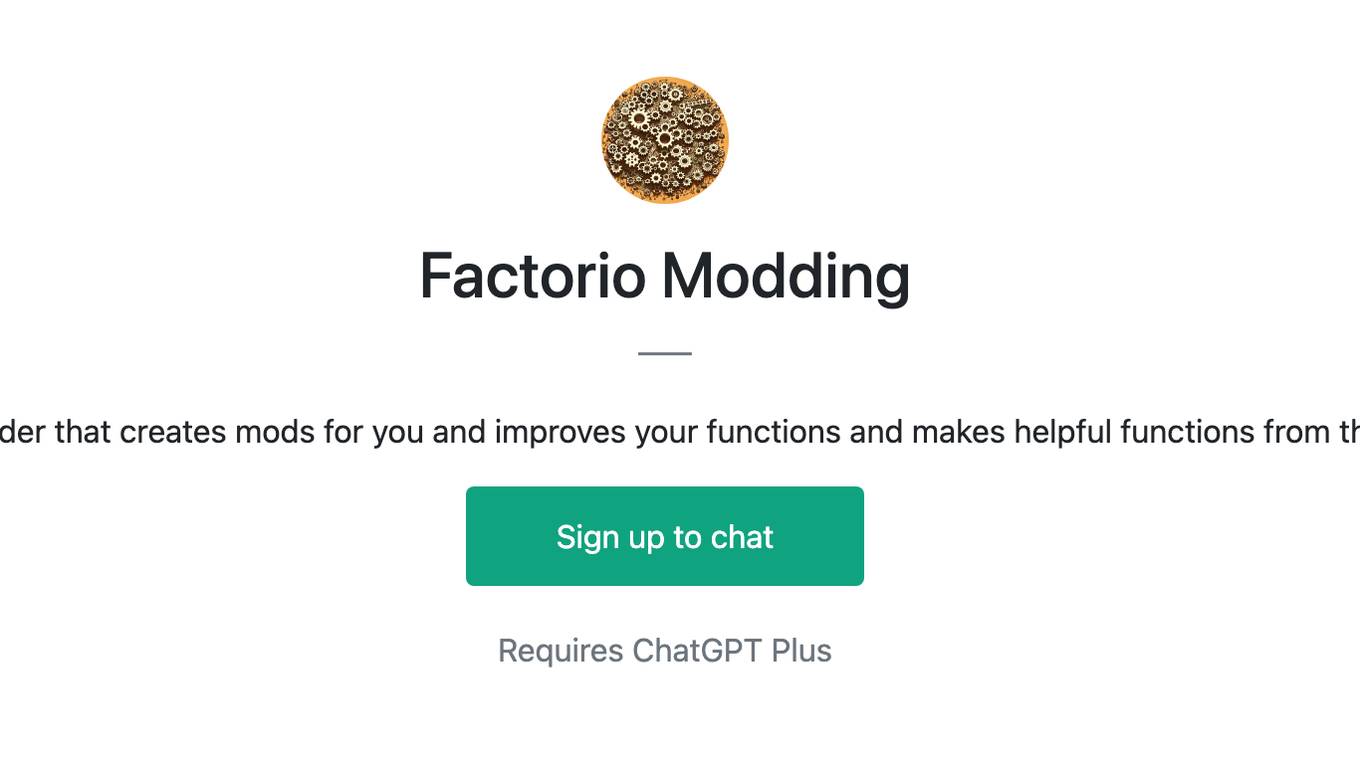
Factorio Modding
A factorio moder that creates mods for you and improves your functions and makes helpful functions from the game api
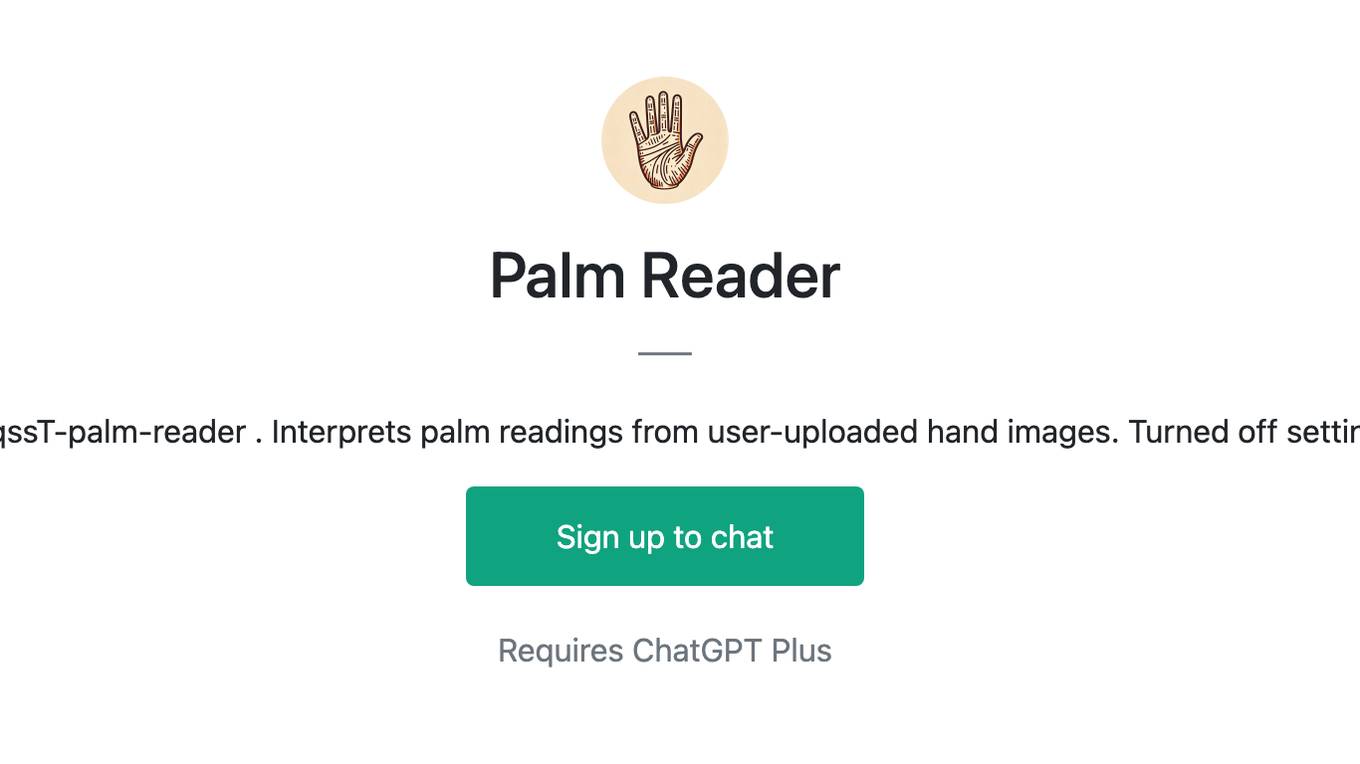
Palm Reader
Moved to https://chat.openai.com/g/g-KFnF7qssT-palm-reader . Interprets palm readings from user-uploaded hand images. Turned off setting to use data for OpenAi to improve model.
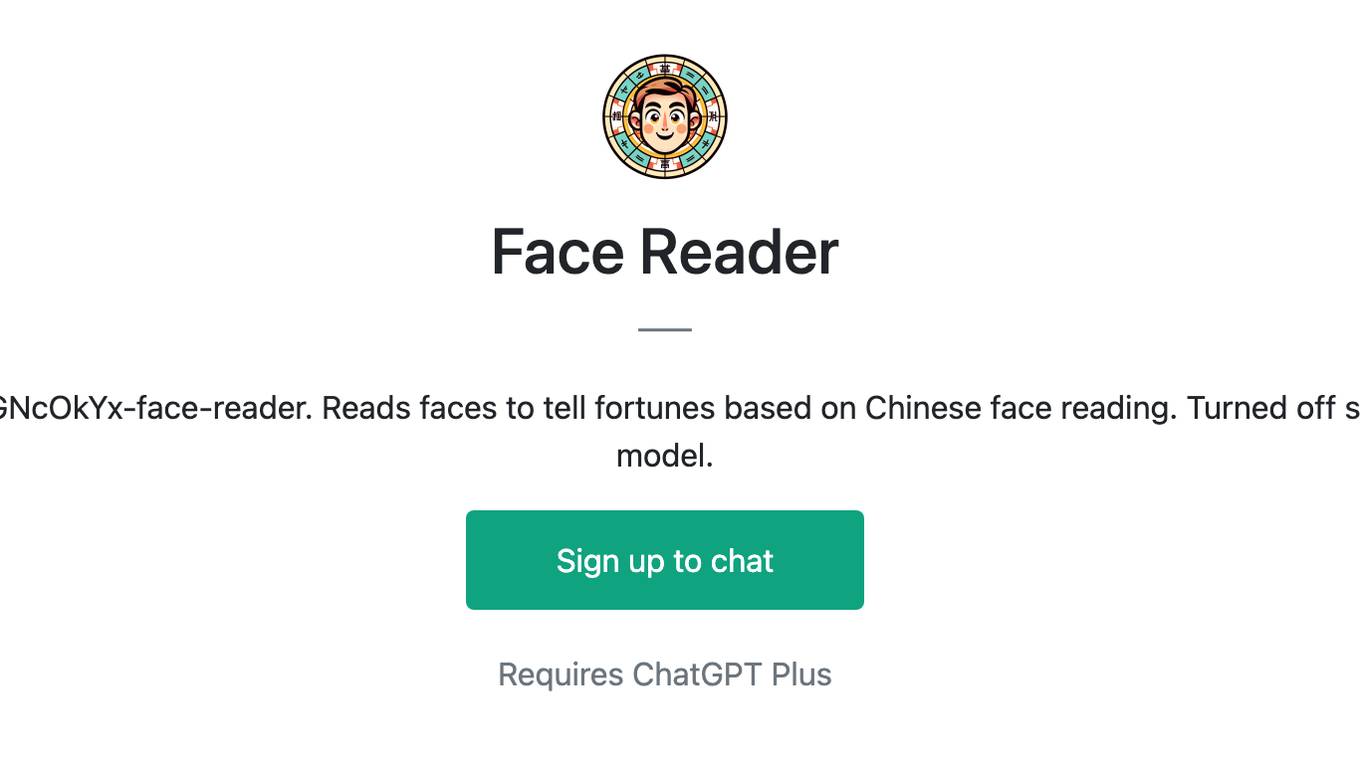
Face Reader
Moved to https://chat.openai.com/g/g-q6GNcOkYx-face-reader. Reads faces to tell fortunes based on Chinese face reading. Turned off setting to use data for OpenAi to improve model.
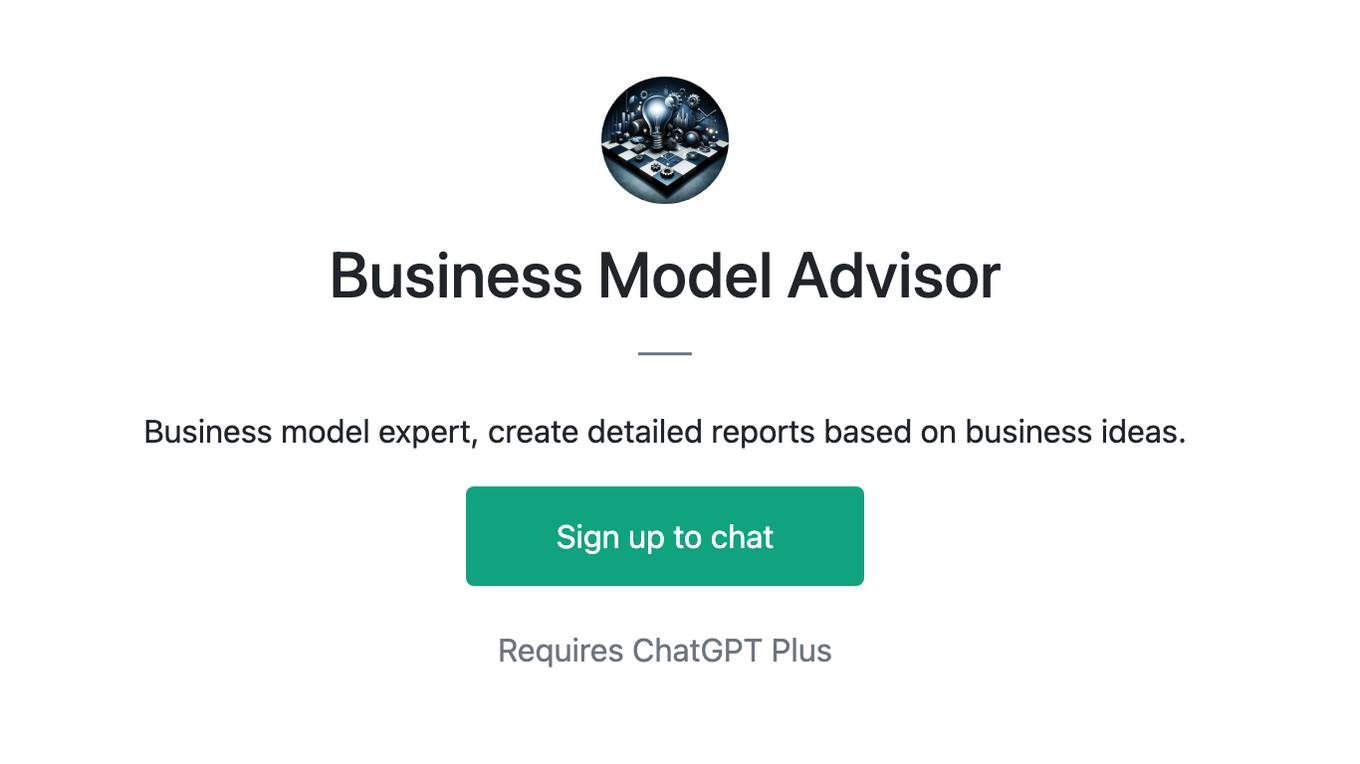
Business Model Advisor
Business model expert, create detailed reports based on business ideas.

Business Model Canvas Wizard
Un aiuto a costruire il Business Model Canvas della tua iniziativa
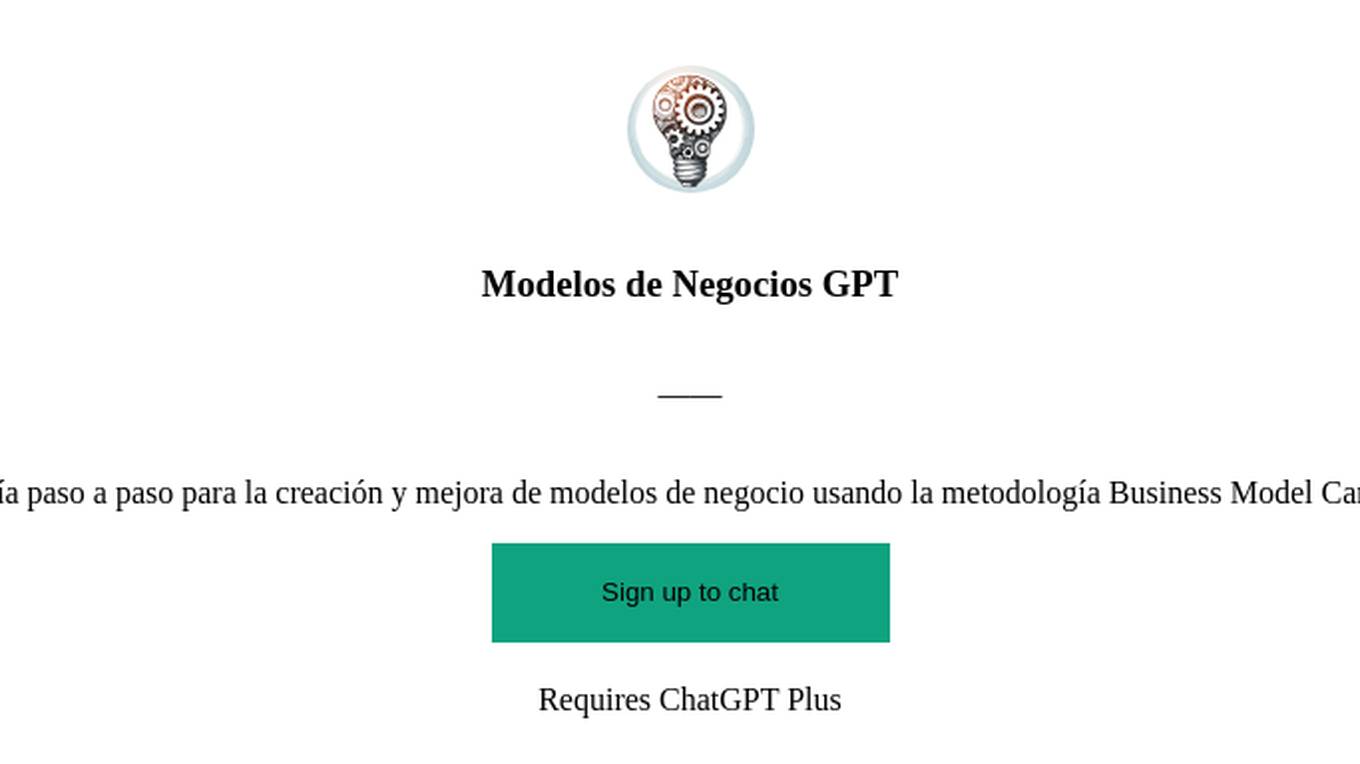
Modelos de Negocios GPT
Guía paso a paso para la creación y mejora de modelos de negocio usando la metodología Business Model Canvas.
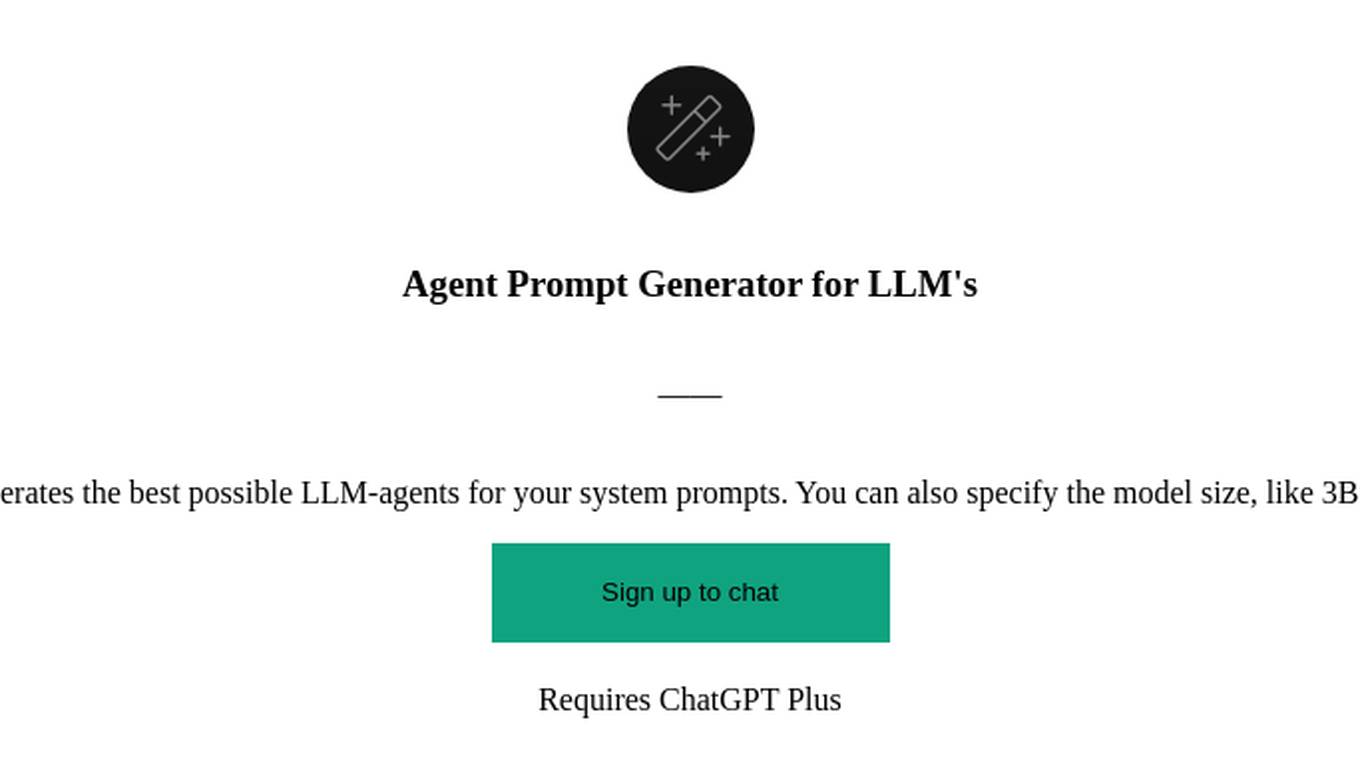
Agent Prompt Generator for LLM's
This GPT generates the best possible LLM-agents for your system prompts. You can also specify the model size, like 3B, 33B, 70B, etc.
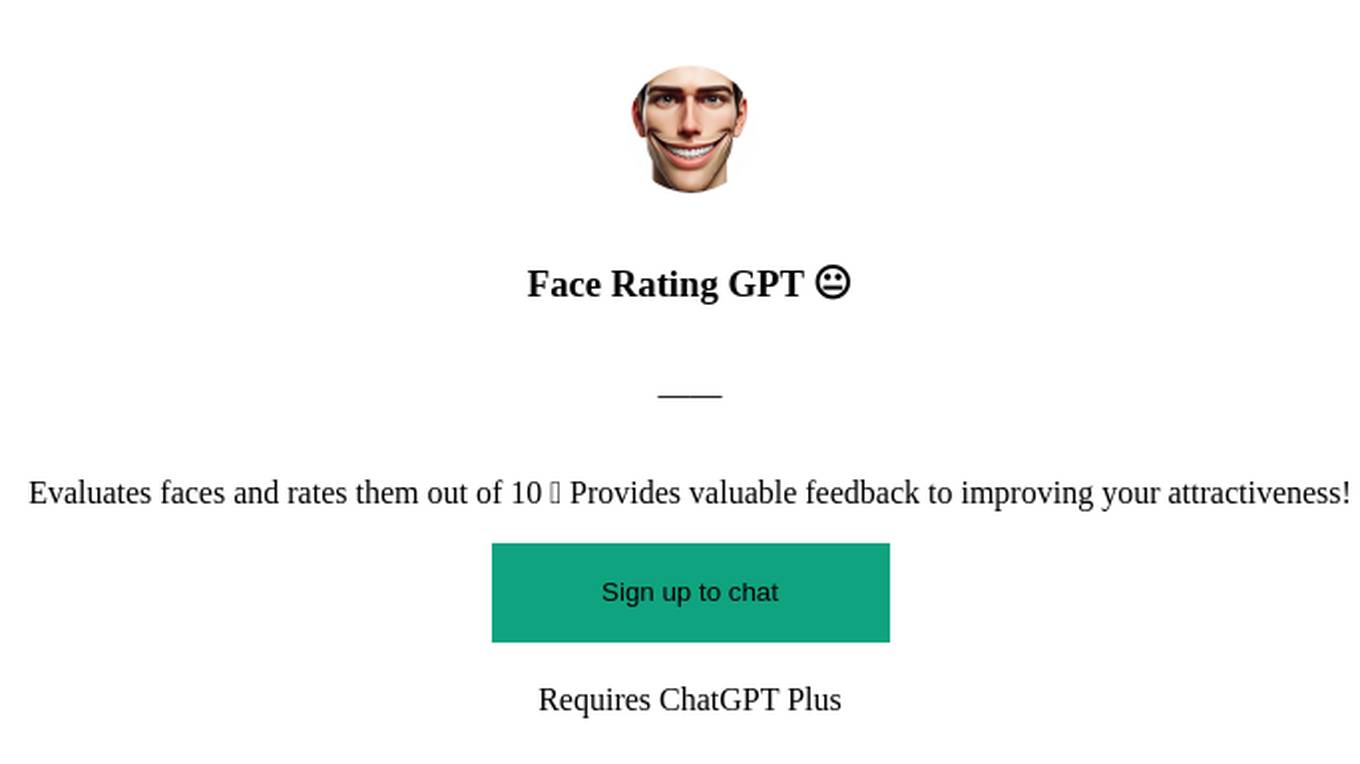
Face Rating GPT 😐
Evaluates faces and rates them out of 10 ⭐ Provides valuable feedback to improving your attractiveness!
